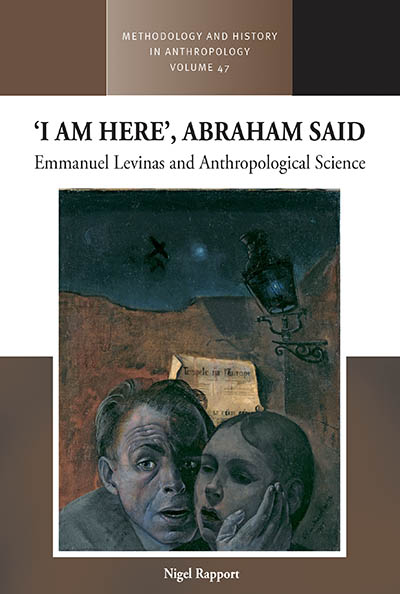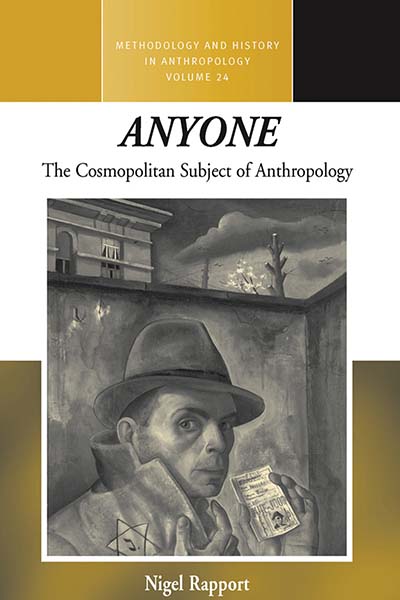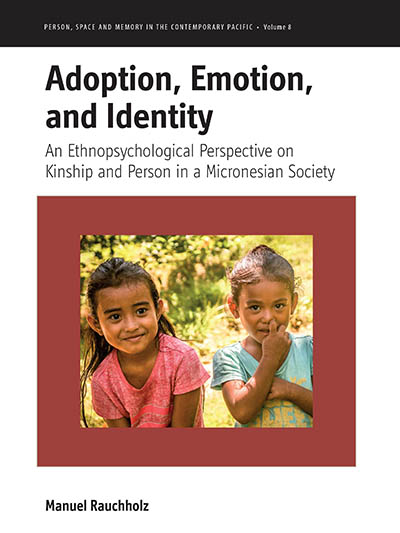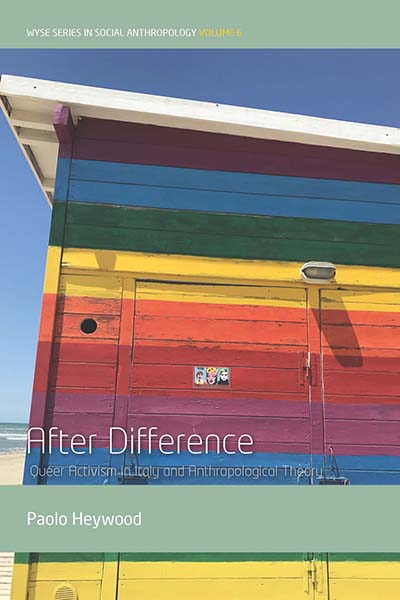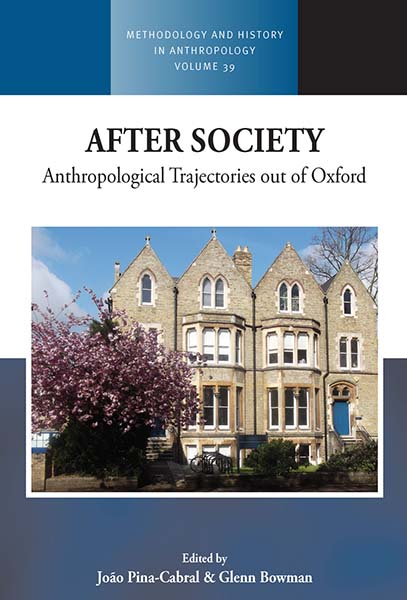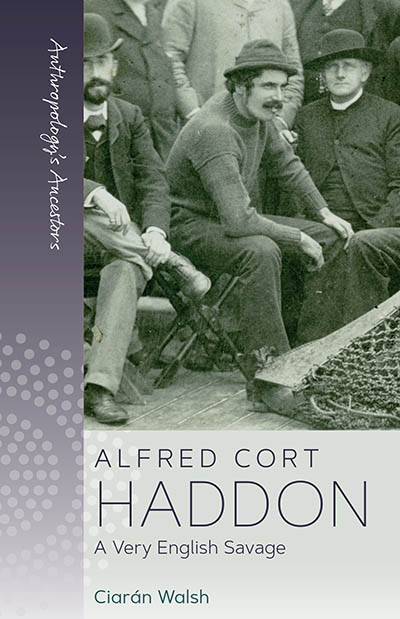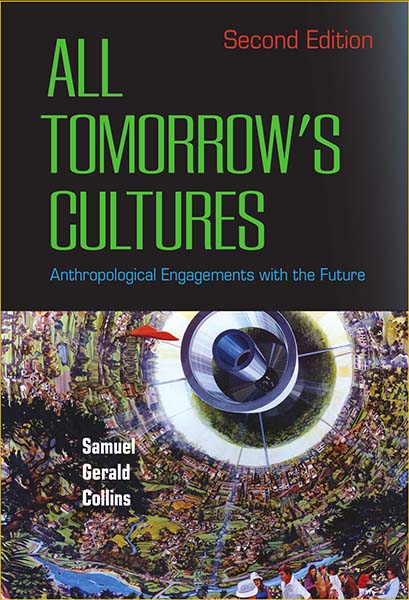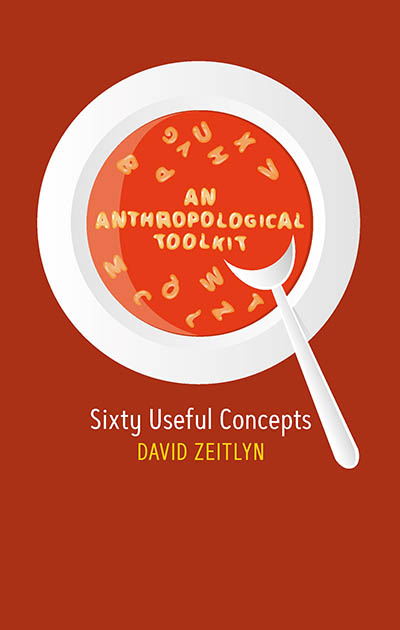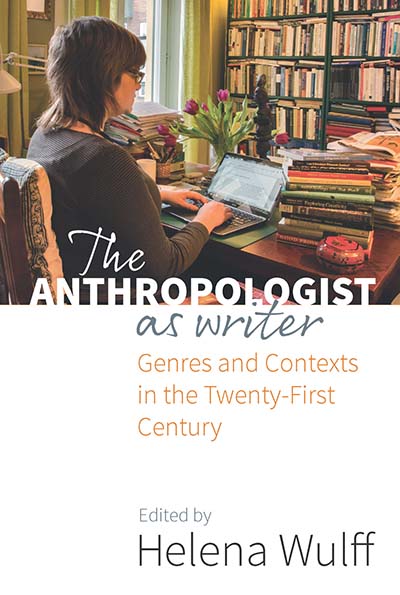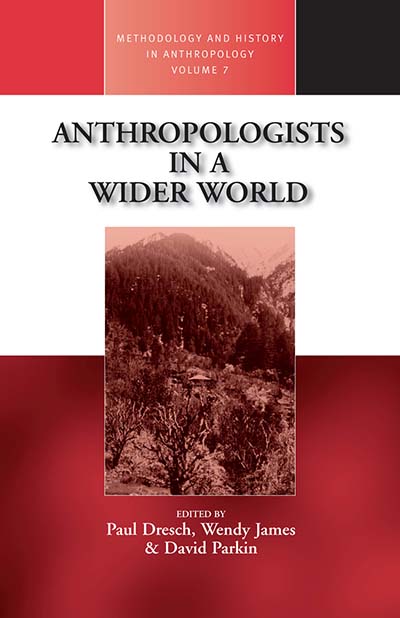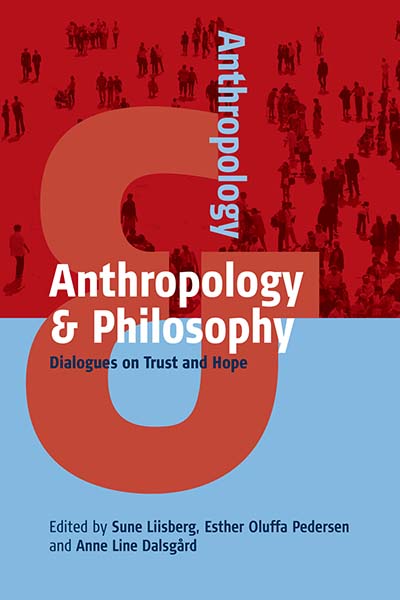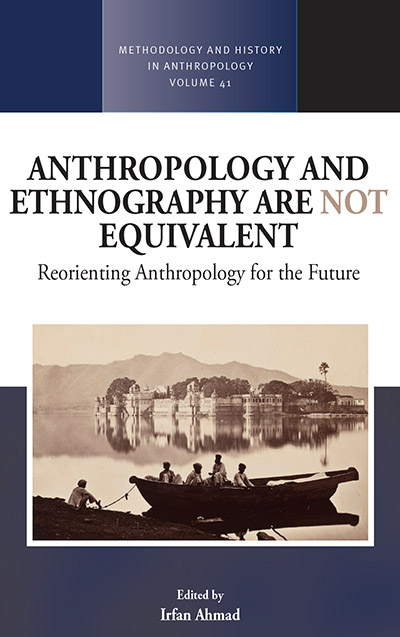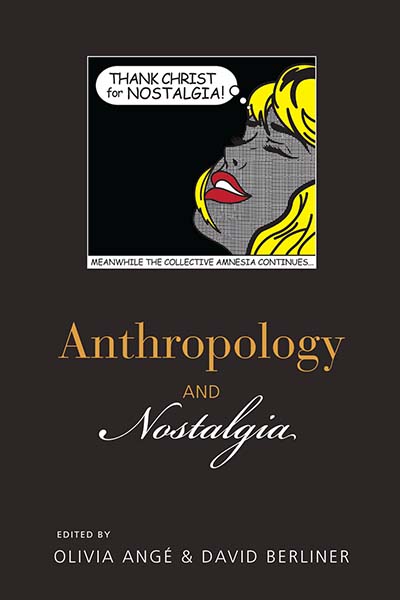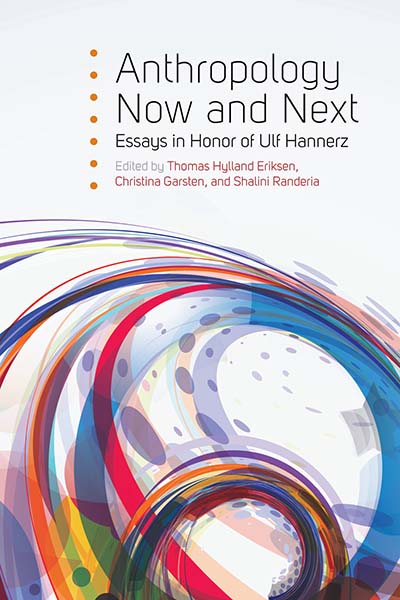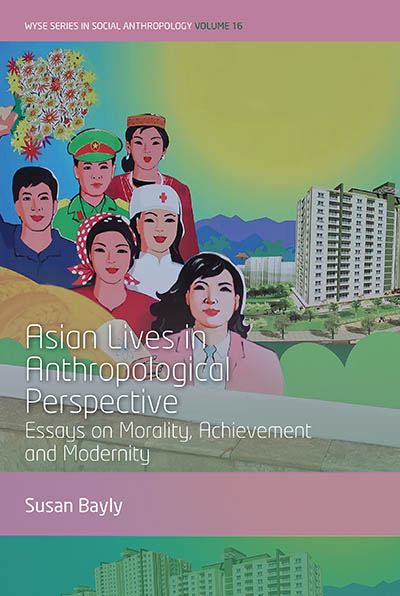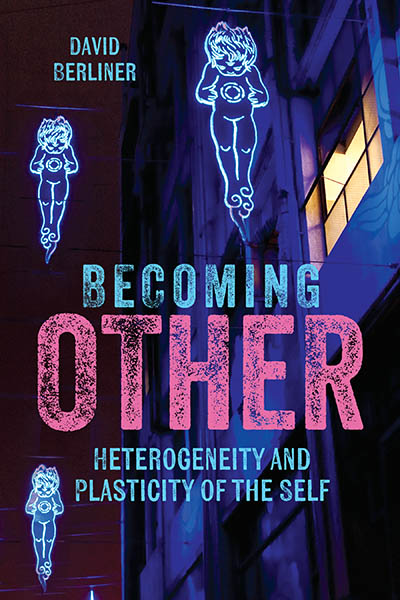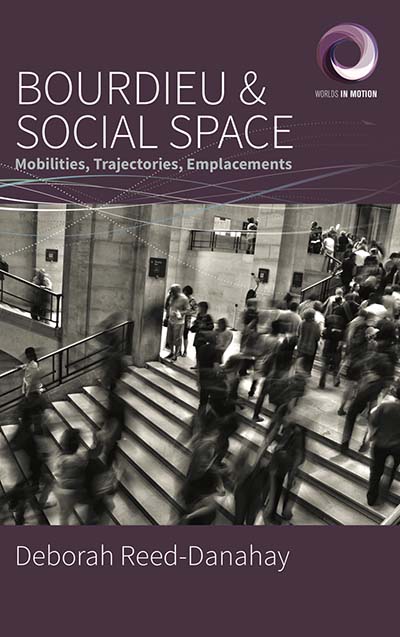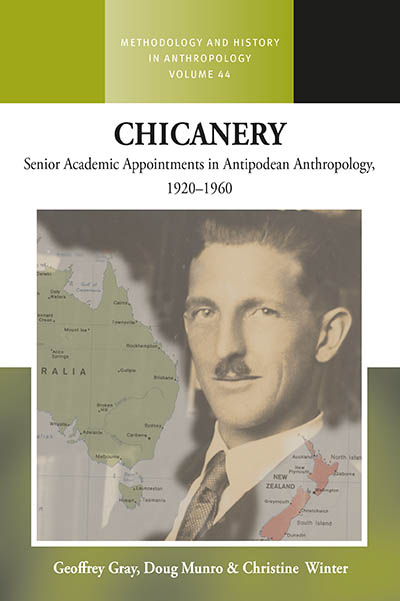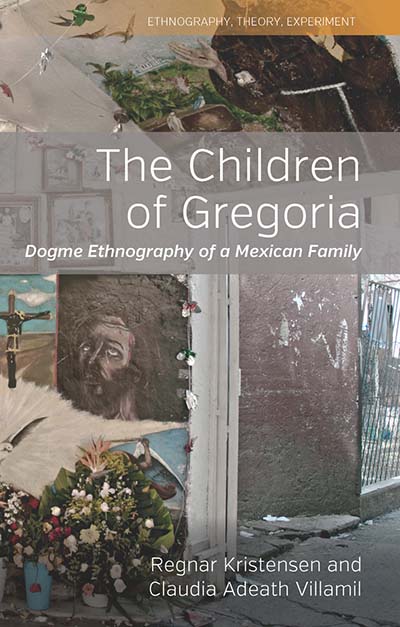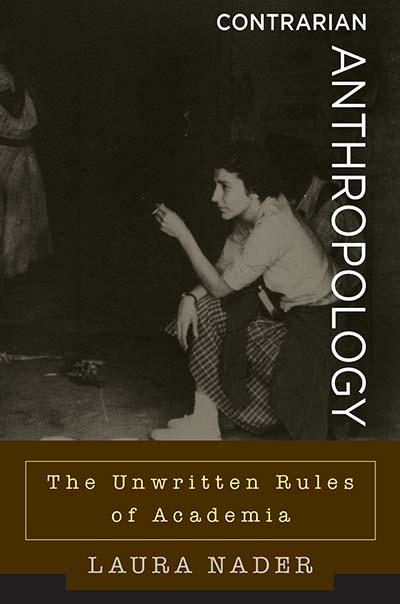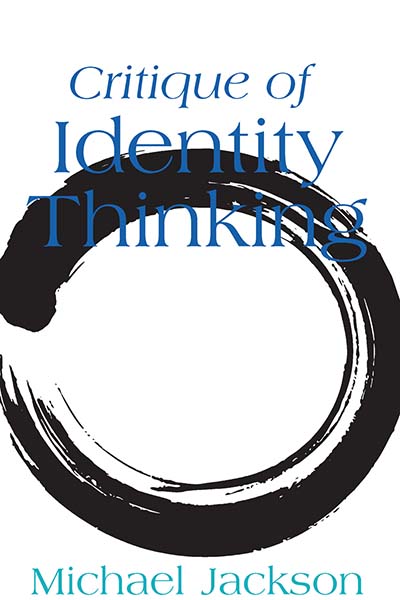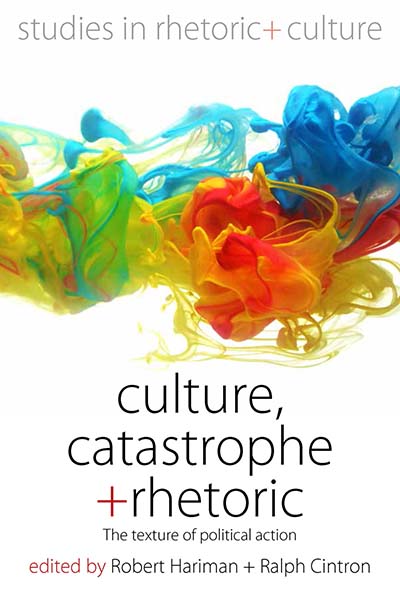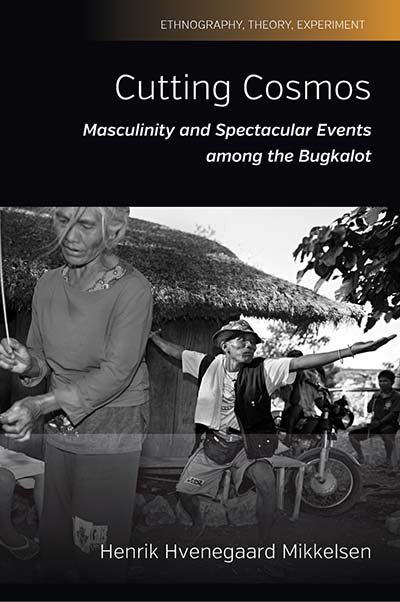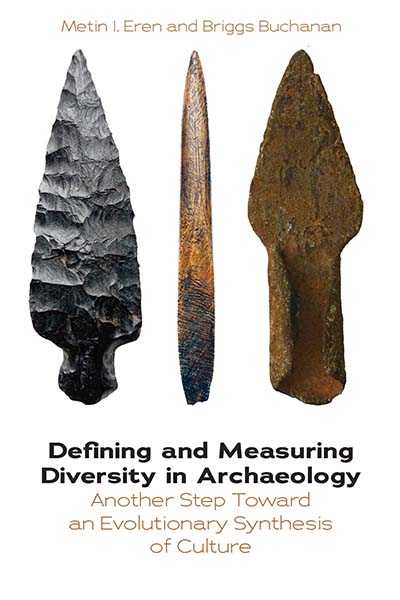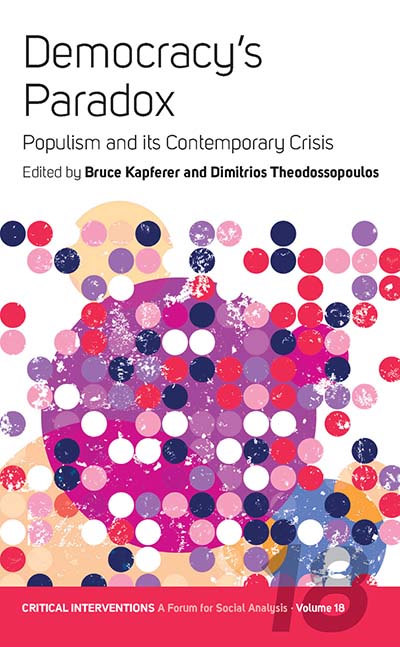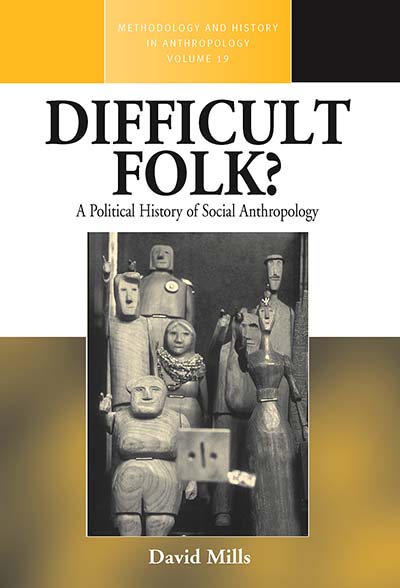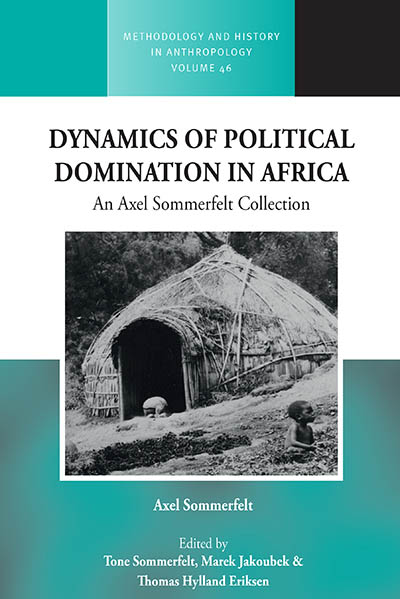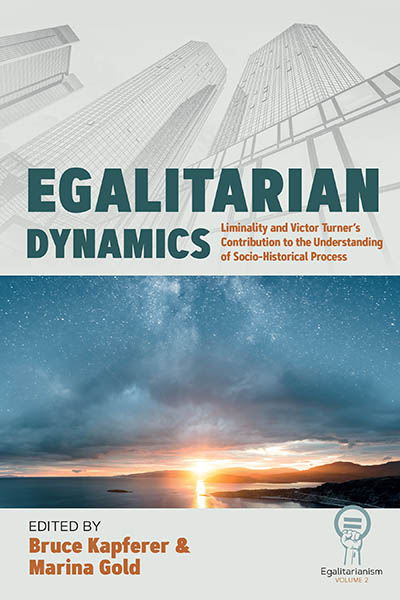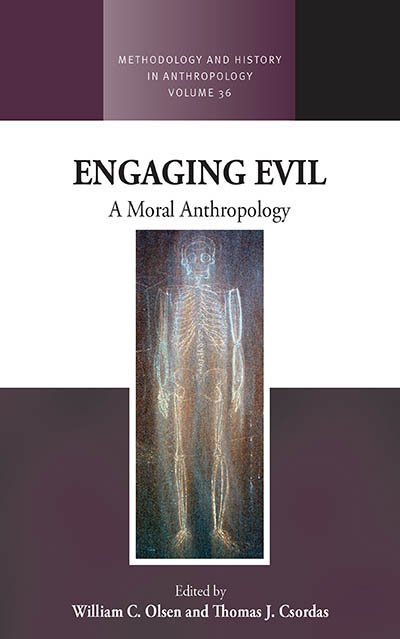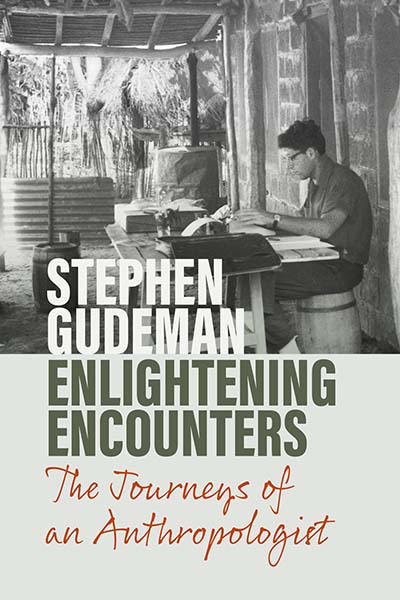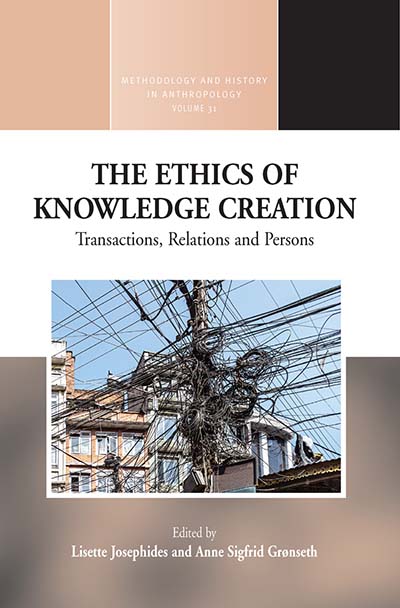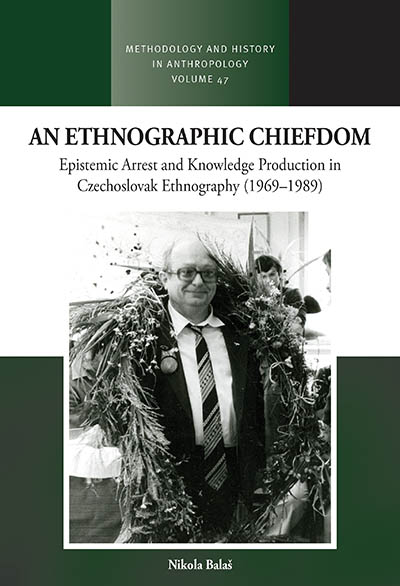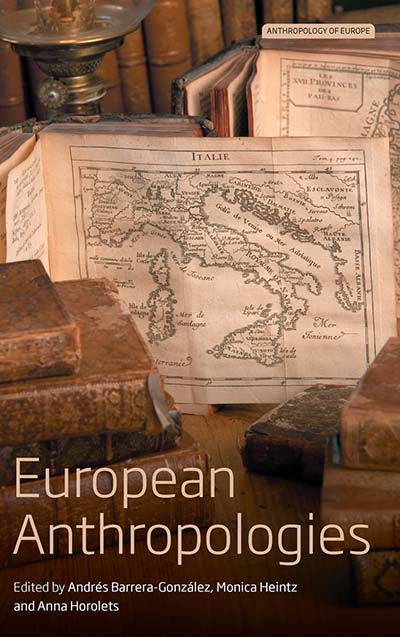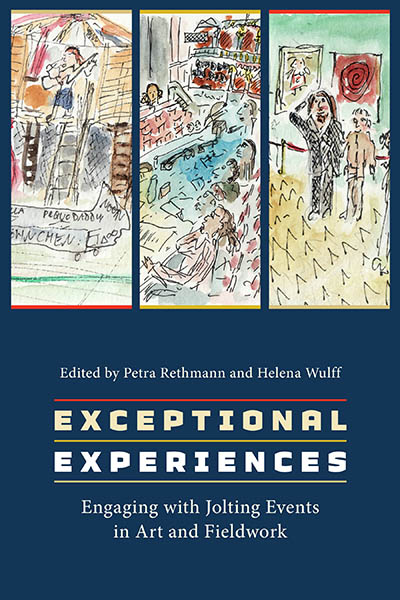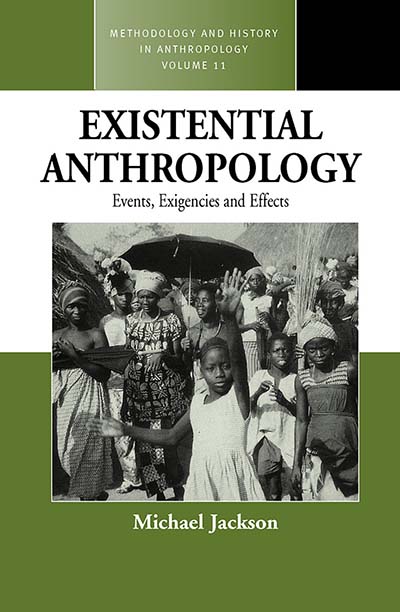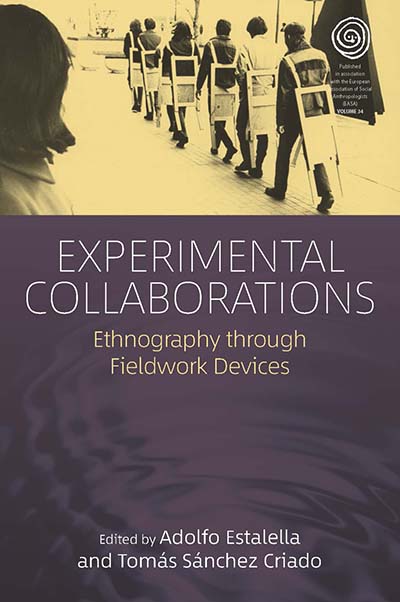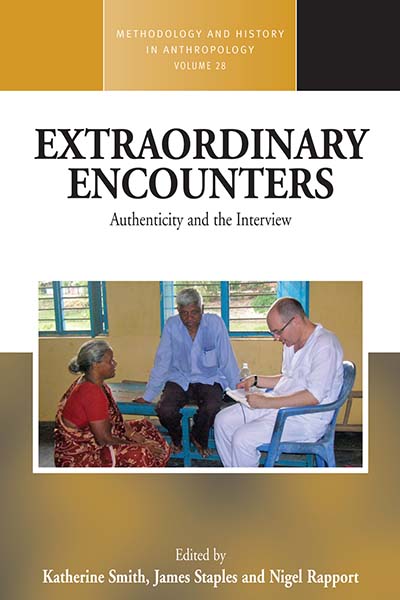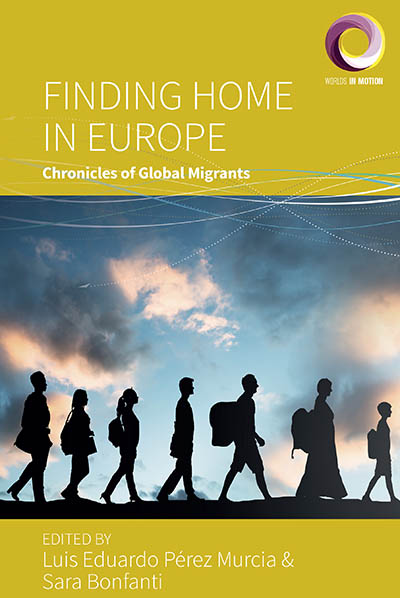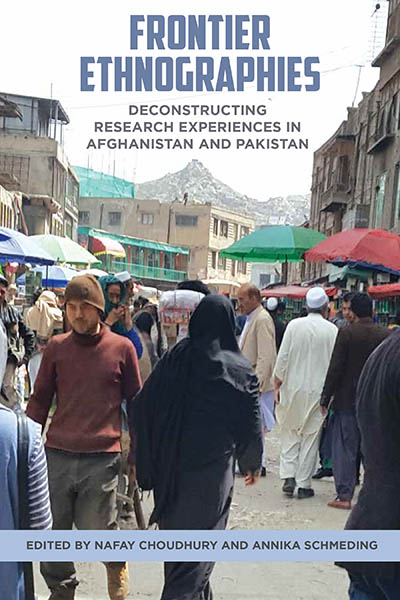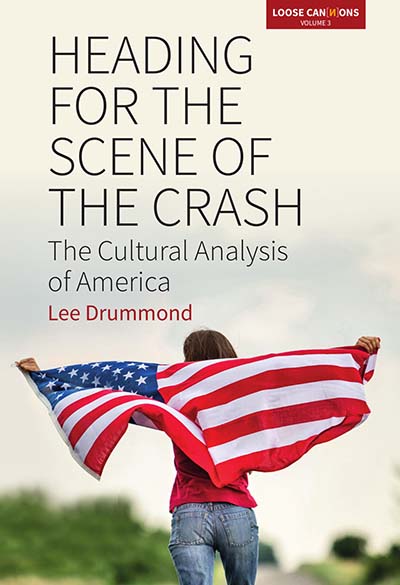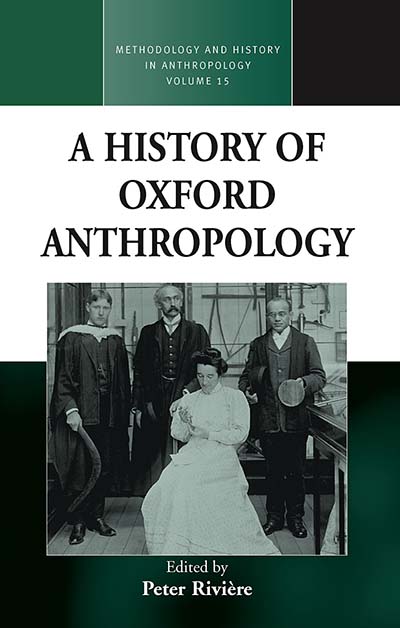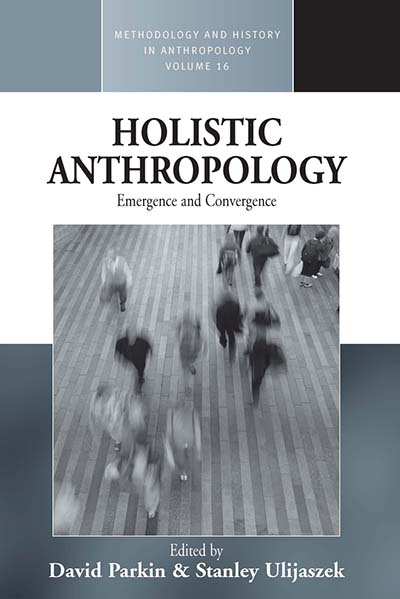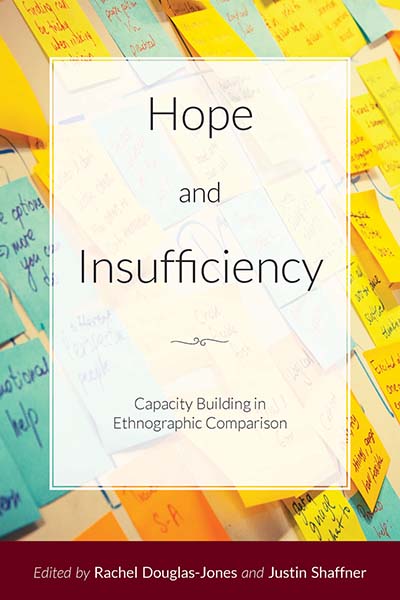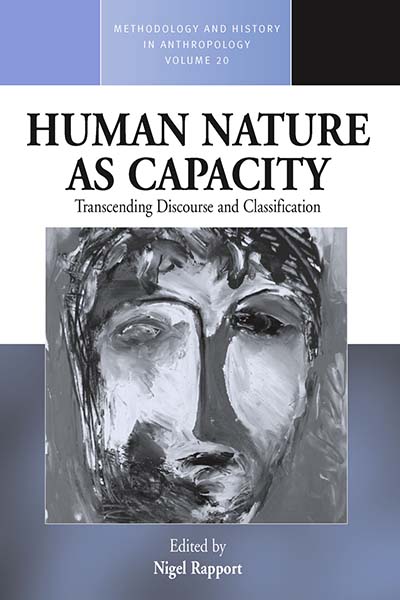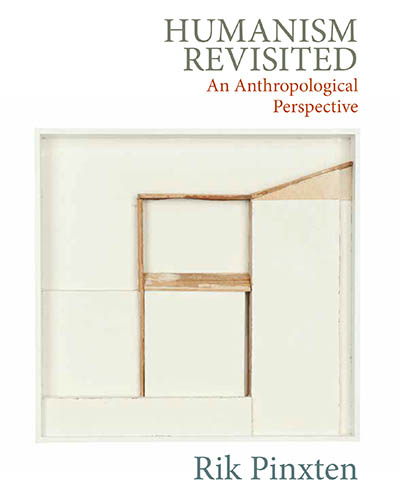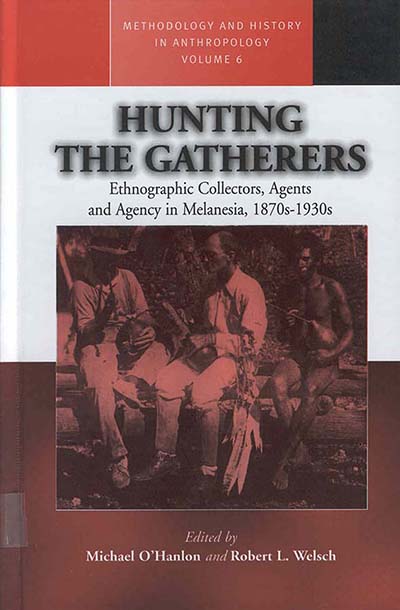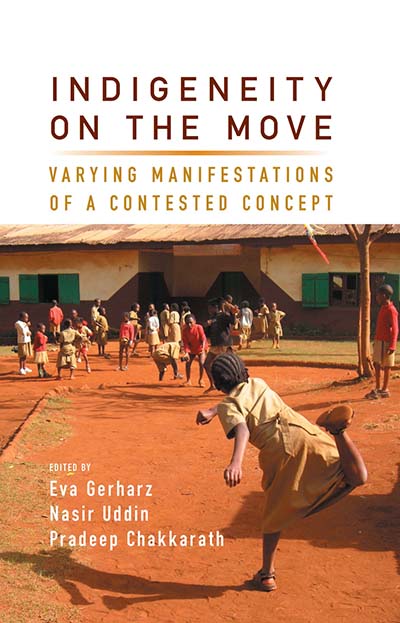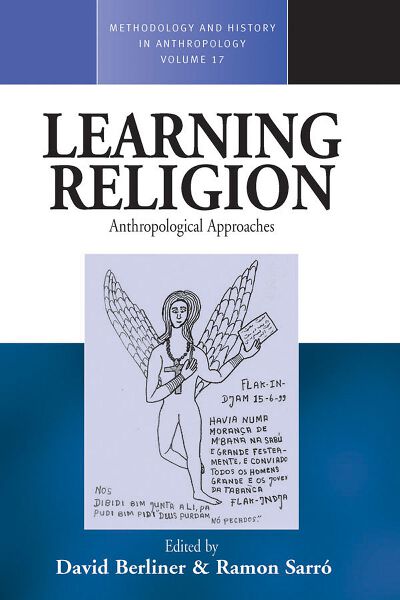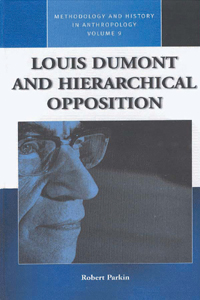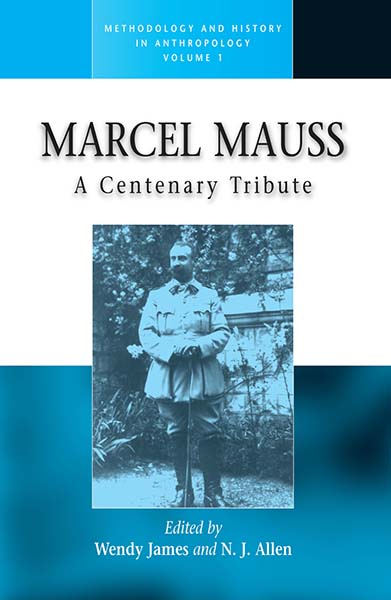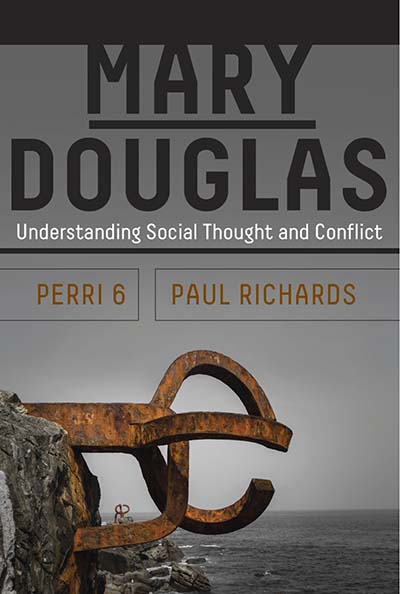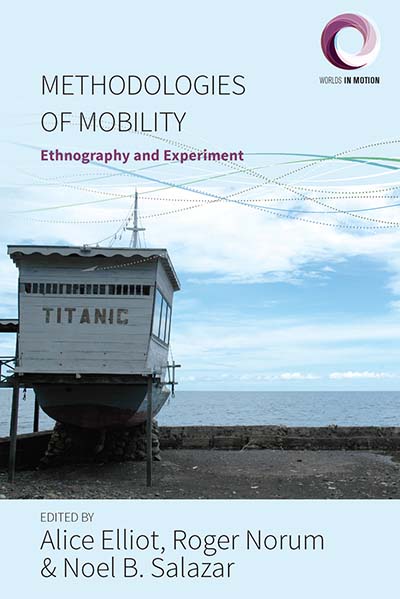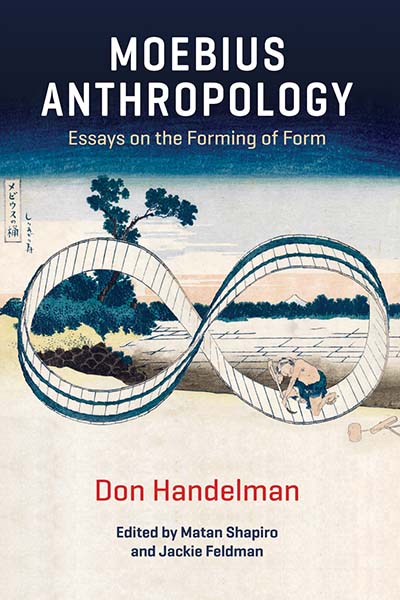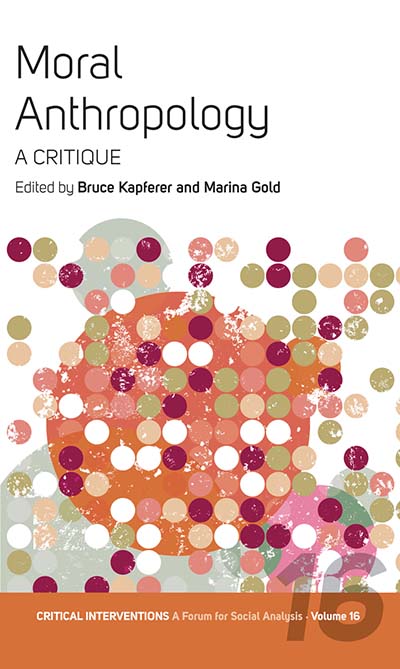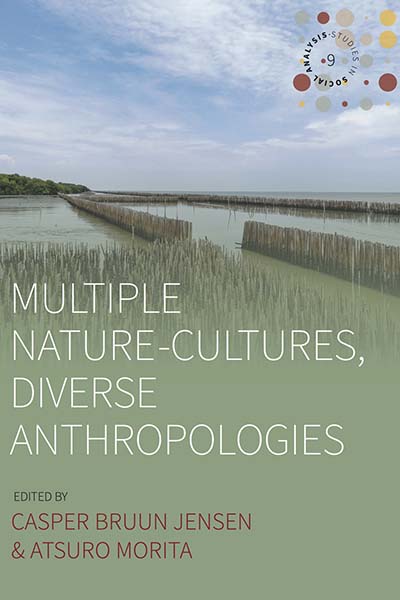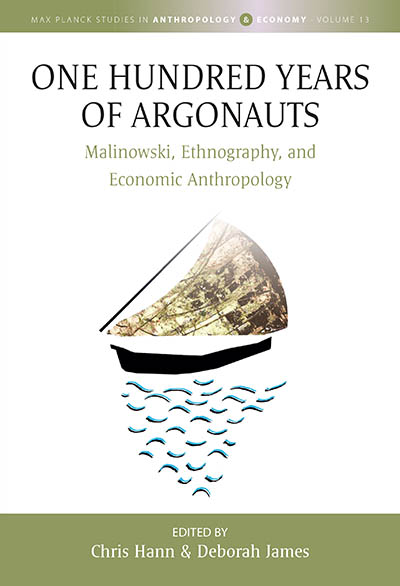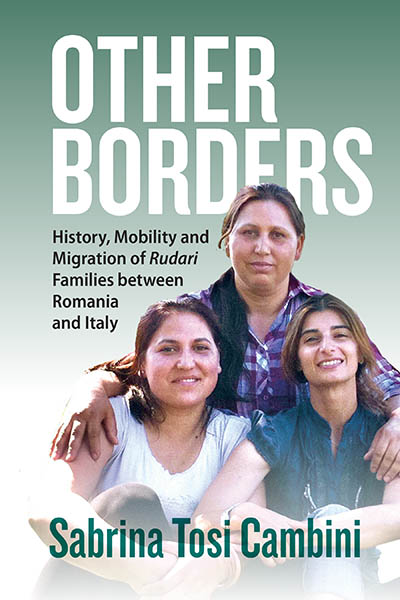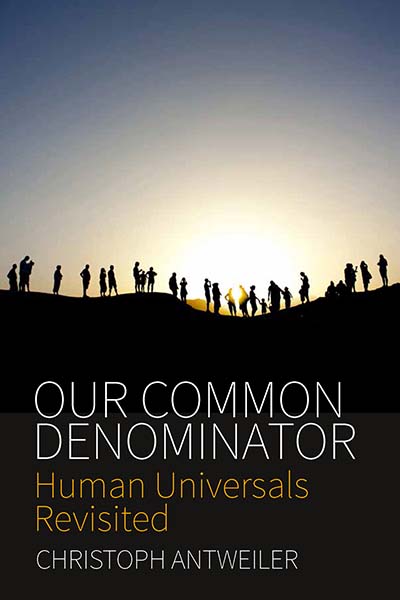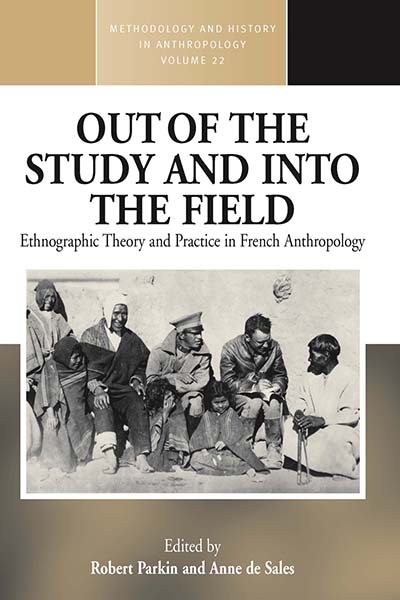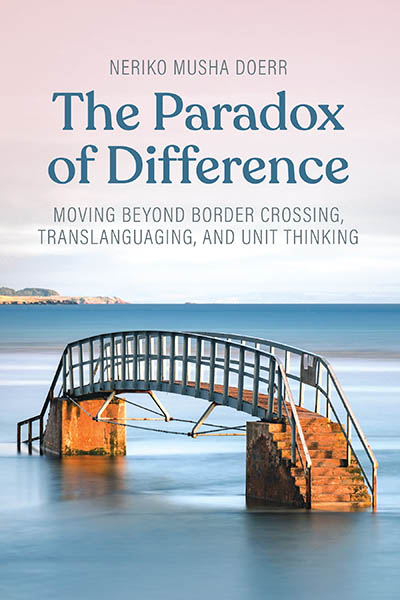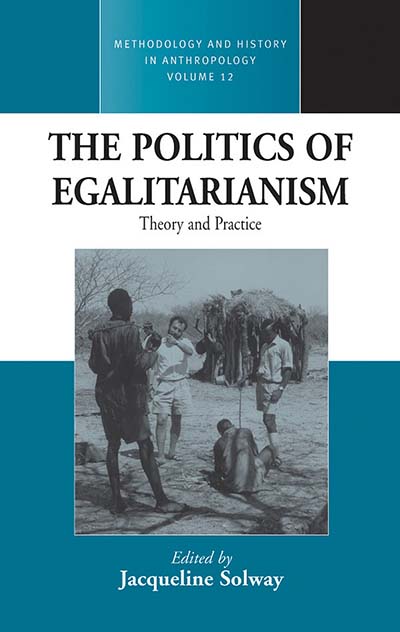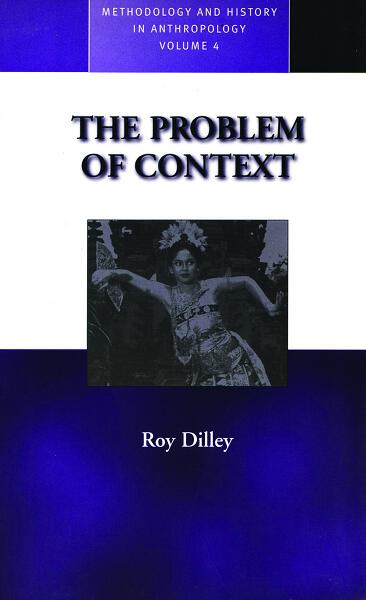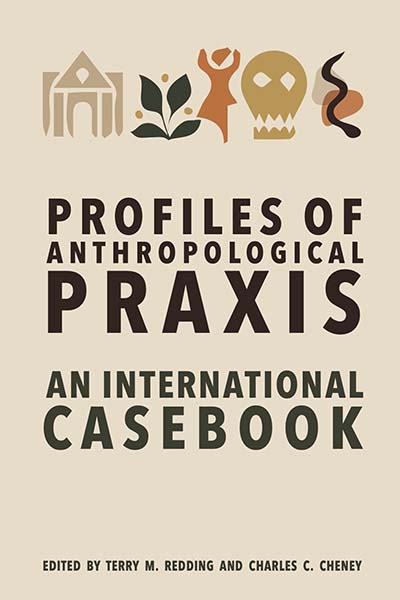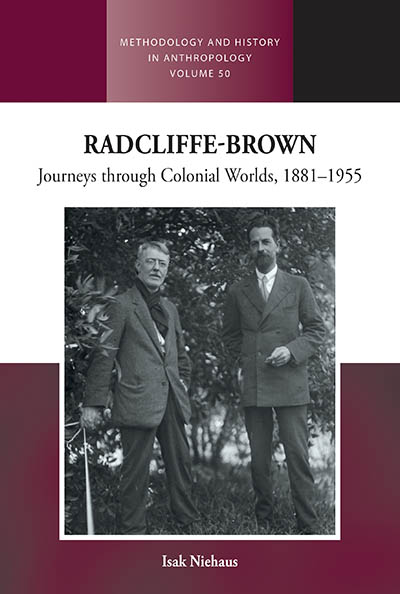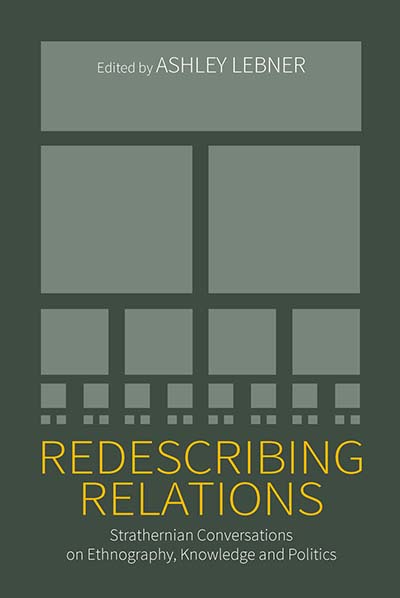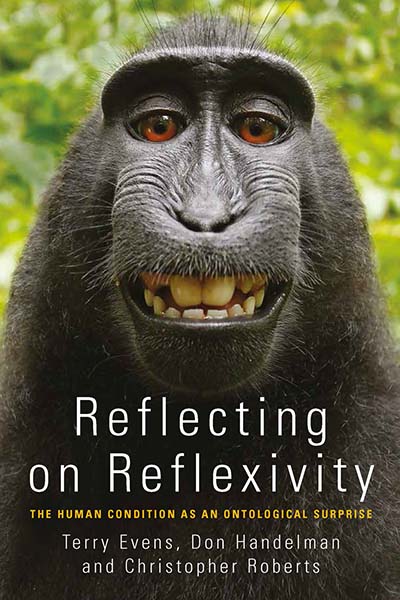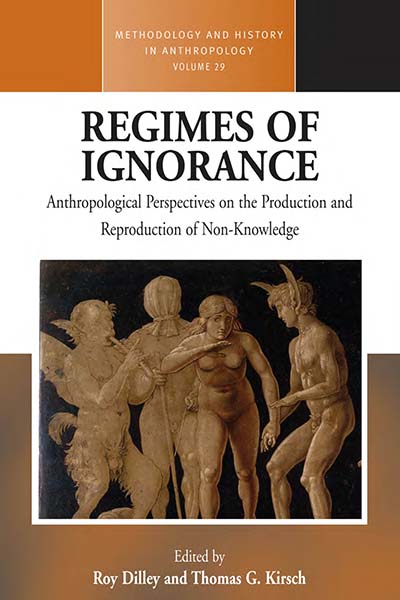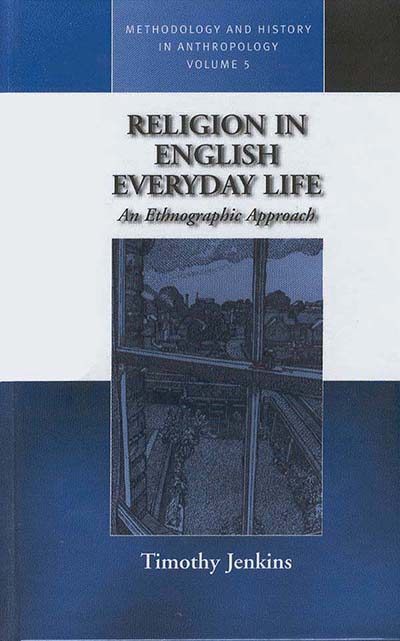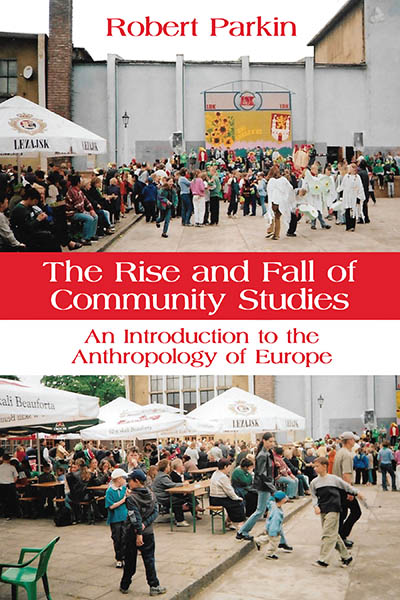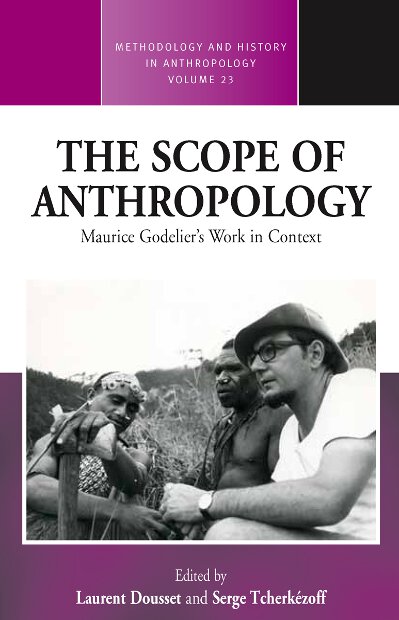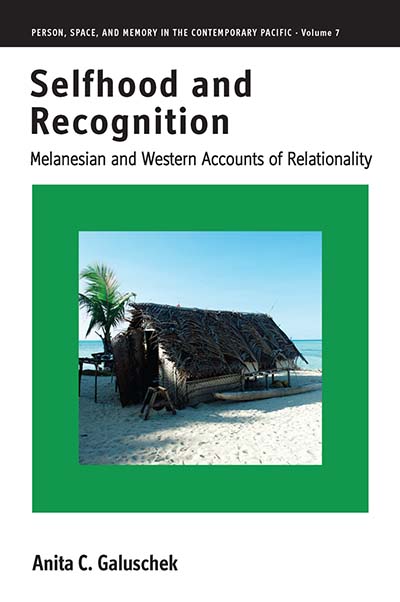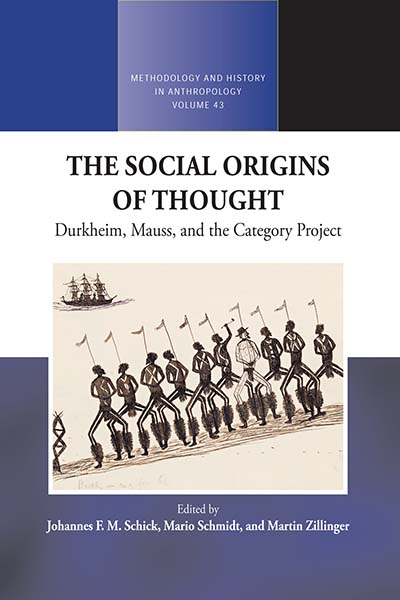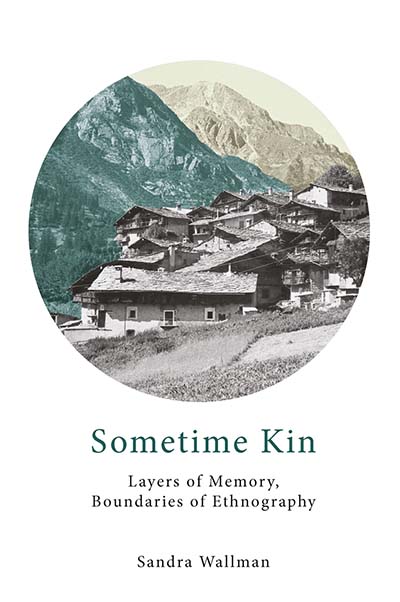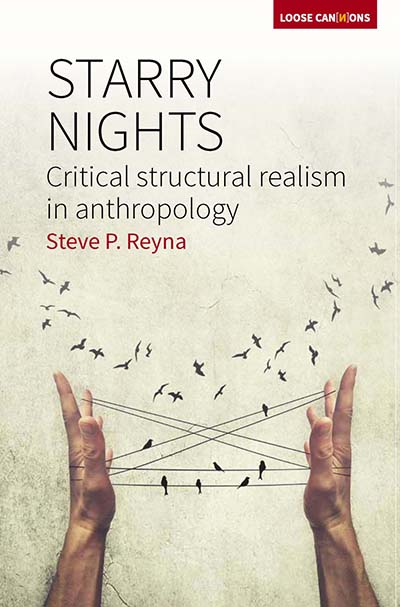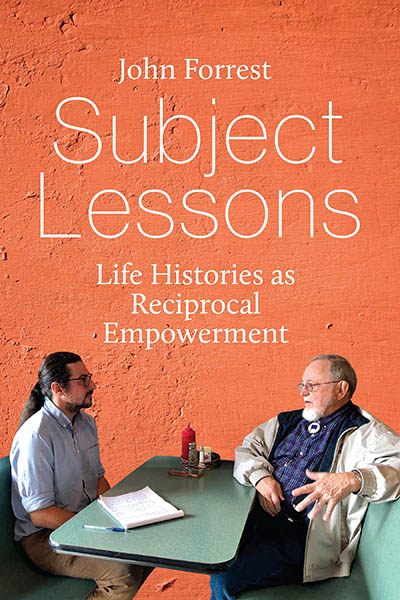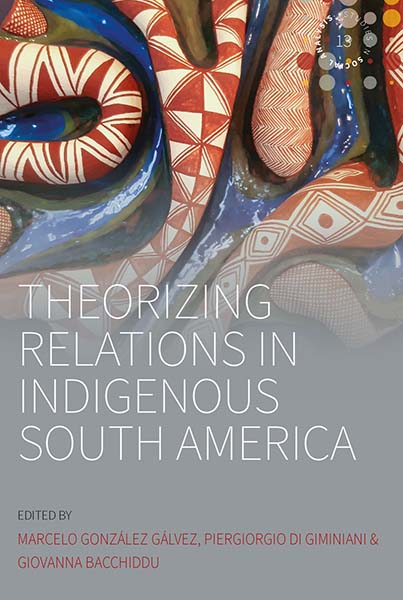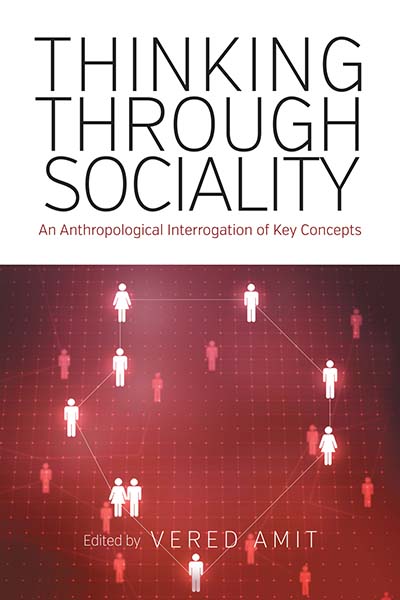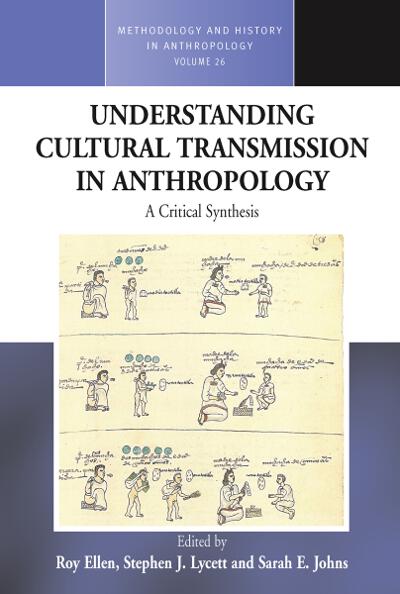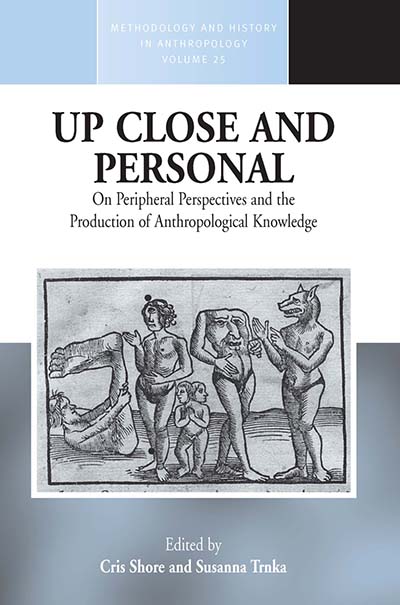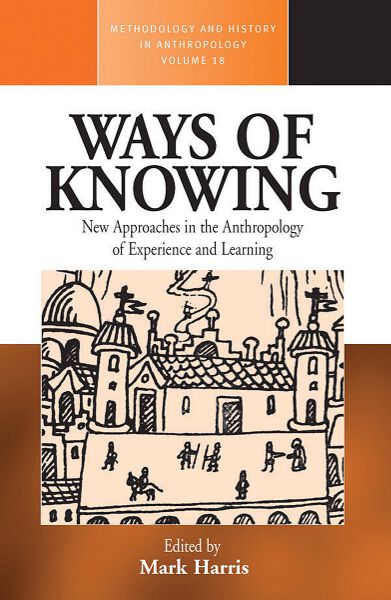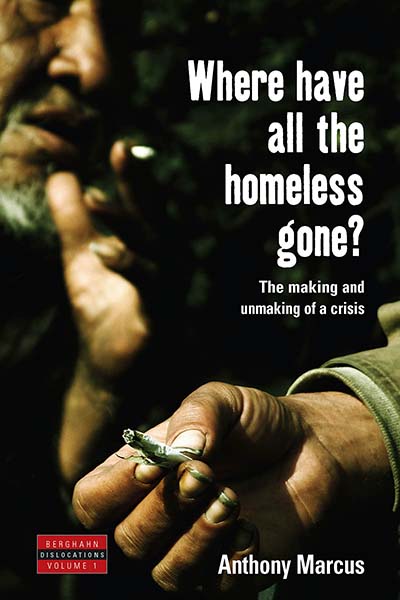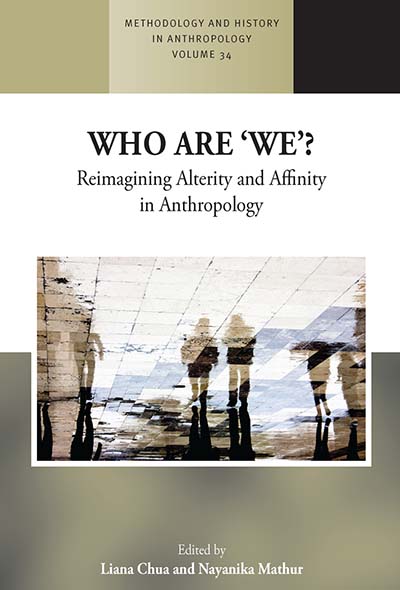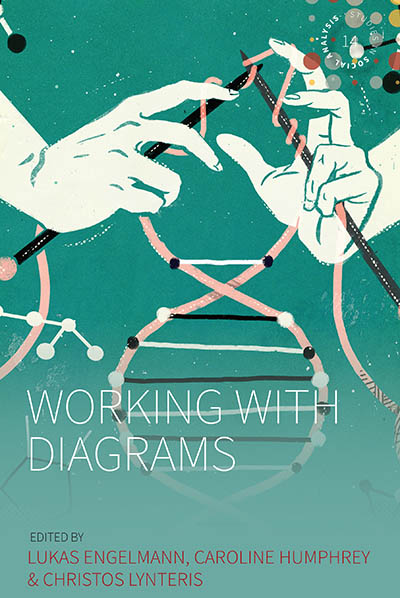Home -> Browse
-

‘I am Here’, Abraham Said
Emmanuel Levinas and Anthropological Science
Rapport, N.
Emmanuel Levinas’s philosophical work on ‘the Other’ offers a challenge to the discipline of anthropology that claims knowledge of the human. For Levinas, the ‘secrecy’ of subjectivity – a fundamental facet of the human condition – demands an ethics of ignorance and not-knowing; the mystery of otherness is only to be approached through ‘inspiration’. Can anthropology meet a Levinasian challenge if it would define itself as a science as well as a humanistic documentation of social life? This book endeavours to take Levinasian and anthropological precepts equally seriously and offers a radical conclusion.
Subjects: Theory and Methodology Anthropology (General)
-

‘You Don’t Know’
Precarious Methods and Life in a Workers' Hostel
Nielsen, J. A. E.
People employed at sites of precarious work such as call centres or retail warehouses often live precarious lives. Drawing on ethnographic research in a London hostel for precarious workers, the book explores the political, analytical and practical limitations of using traditional methods of trying to make sense of life in these settings. Traditional methods are rooted in practices that emerge from privileged social positions and their enactment is deeply entangled with the processes that create these conditions in the first place. This book responds to this by experimenting with ‘precarious methods’ to enable greater agency to those placed in these precarious situations.
Subjects: Theory and Methodology Sociology
Area: Europe
-

Anyone
The Cosmopolitan Subject of Anthropology
Rapport, N.
The significance that people grant to their affiliations as members of nations, religions, classes, races, ethnicities and genders is evidence of the vital need for a cosmopolitan project that originates in the figure of Anyone – the universal and yet individual human being. Cosmopolitanism offers an alternative to multiculturalism, a different vision of identity, belonging, solidarity and justice, that avoids the seemingly intractable character of identity politics: it identifies samenesses of the human condition that underlie the surface differences of history, culture and society, nation, ethnicity, religion, class, race and gender. This book argues for the importance of cosmopolitanism as a theory of human being, as a methodology for social science and as a moral and political program.
Subject: Theory and Methodology
-

Adoption, Emotion, and Identity
An Ethnopsychological Perspective on Kinship and Person in a Micronesian Society
Rauchholz, M.
Exploring adoption in the Pacific, this book goes beyond the commonplace structural-functional analysis of adoption as a positive “transaction in parenthood.” It examines the effects it has on adoptees’ inner sense of self, their conflicted emotional lives, and familial relationships that are affected by a personal sense of rejection and not belonging. This account is theoretically rooted in ethnopsychology, based on field work conducted across multiple research sites in the Chuuk Lagoon, its neighboring Chuukic-speaking atolls, and persons from neighboring Micronesian island communities.
Subjects: Anthropology (General) Theory and Methodology
Area: Asia-Pacific
-

After Difference
Queer Activism in Italy and Anthropological Theory
Heywood, P.
Queer activism and anthropology are both fundamentally concerned with the concept of difference. Yet they are so in fundamentally different ways. The Italian queer activists in this book value difference as something that must be produced, in opposition to the identity politics they find around them. Conversely, anthropologists find difference in the world around them, and seek to produce an identity between anthropological theory and the ethnographic material it elucidates. This book describes problems faced by an activist "politics of difference," and issues concerning the identity of anthropological reflection itself—connecting two conceptions of difference whilst simultaneously holding them apart.
Subjects: Theory and Methodology Anthropology (General) Gender Studies and Sexuality
Area: Southern Europe
-

After Society
Anthropological Trajectories out of Oxford
Pina-Cabral, J. & Bowman, G. (eds)
In the early 1980s, when the contributors to this volume completed their graduate training at Oxford, the conditions of practice in anthropology were undergoing profound change. Professionally, the immediate postcolonial period was over and neoliberal reforms were marginalizing the social sciences. Analytically, the poststructuralist critique of the notion of ‘society’ challenged a discipline that dubbed itself as ‘social’. Here self-ethnography is used to portray the contributors’ anthropological trajectories, showing how analytical and academic engagements interacted creatively over time.
Subject: Theory and Methodology
Area: Europe
-

Alfred Cort Haddon
A Very English Savage
Walsh, C.
An innovative account of one of the least-understood characters in the history of anthropology.
Using previously overlooked, primary sources Ciarán Walsh argues that Haddon, the grandson of anti-slavery activists, set out to revolutionize anthropology in the 1890s in association with a network of anarcho-utopian activists and philosophers. He regards most of what has been written about Haddon in the past as a form of disciplinary folklore shaped by a theory of scientific revolutions.
The main action takes place in Ireland, where Haddon adopted the persona of a very English savage in a new form of performed photo-ethnography that constituted a singularly modernist achievement in anthropology.
From the Introduction:
Alfred Cort Haddon was written out of the story of anthropology for the same reasons that make him interesting today. He was passionately committed to the protection of simpler societies and their civilisations from colonists and their supporters in parliament and the armed forces.
Subjects: Anthropology (General) Theory and Methodology
Area: Europe
-

All Tomorrow's Cultures
Anthropological Engagements with the Future
Collins, S. G.
The first edition of All Tomorrow’s Cultures explored the legacy of futures-thinking in anthropology and marked the beginning of a resurgence of interest in anthropological futures. The new edition has been updated to reflect some of the outpouring of work since then, particularly in science and technology studies and in anthropological analyses of indigenous futures. In addition, Collins has updated the final chapter to expand the field of anthropological possibility in an age of both despair and hope.
Subjects: Theory and Methodology Cultural Studies (General)
-

An Anthropological Toolkit
Sixty Useful Concepts
Zeitlyn, D.
Presenting sixty theoretical ideas, David Zeitlyn asks ‘How to write about anthropological theory without making a specific theoretical argument.’
“David Zeitlyn has written a wryly engaging, short book on, essentially, why we should not become theoretical partisans—that, indeed, being a serious theorist means accepting precisely that principle.”—Michael Herzfeld, Harvard University
To answer, he offers a series of mini essays about an eclectic collection of theoretical concepts that he has found helpful over the years. The book celebrates the muddled inconsistencies in the ways that humans live their messy lives. There are, however, still patterns discernible: the actors can understand what is going on, they see an event unfolding in ways that are familiar, as belonging to a certain type and therefore, Zeitlyn suggests, so can researchers.
From the introduction:
This book promotes an eclectic, multi-faceted anthropology in which multiple approaches are applied in pursuit of the limited insights which each can afford…. I do not endorse any one of these idea as supplying an exclusive path to enlightenment: I absolutely do not advocate any single position. As a devout nonconformist, I hope that the following sections provide material, ammunition and succour to those undertaking nuanced anthropological analysis (and their kin in related disciplines)…. Mixing up or combining different ideas and approaches can produce results that, in their breadth and richness, are productive for anthropology and other social sciences, reflecting the endless complexities of real life.…This is my response to the death of grand theory. I see our task as learning how to deal with that bereavement and how to resist the siren lures of those promising synoptic overviews.
This book is relevant to anthropology, communication studies, cultural studies and sociology.
Subjects: Anthropology (General) Theory and Methodology
-

The Anthropologist as Writer
Genres and Contexts in the Twenty-First Century
Wullf, H. (ed)
Writing is crucial to anthropology, but which genres are anthropologists expected to master in the 21st century? This book explores how anthropological writing shapes the intellectual content of the discipline and academic careers. First, chapters identify the different writing genres and contexts anthropologists actually engage with. Second, this book argues for the usefulness and necessity of taking seriously the idea of writing as a craft and of writing across and within genres in new ways. Although academic writing is an anthropologist’s primary genre, they also write in many others, from drafting administrative texts and filing reports to composing ethnographically inspired journalism and fiction.
Subject: Theory and Methodology
-

Anthropologists in a Wider World
Essays on Field Research
Dresch, P., James, W. & Parkin, D.
The tradition of intensive fieldwork by a single anthropologist in one area has been challenged by new emphasis on studying historical patterns, wider regions, and global networks. Some anthropologists have started their careers from the new vantage point, amidst a chorus of claims for innovative methodologies. Others have lived through these changes of perspective and are able to reflect on them, while re-evaluating the place of fieldwork within the broader aims of general anthropology. This book explores these transformations of world view and approach as they have been experienced by anthropological colleagues, a number of whom began their work very much in the earlier tradition. They cover experiences of field research in Africa, Papua New Guinea, South America, Central and South Asia, Europe, the Middle East, Indonesia, Japan and China. Constant through the chapters is a distinctively qualitative empirical approach, once associated with the village but now being developed in relation to large-scale or dispersed communities.
Subjects: Theory and Methodology Applied Anthropology
-

Anthropology & Philosophy
Dialogues on Trust and Hope
Liisberg, S., Pedersen, E. O., Dalsgård, A. L. (eds)
The present book is no ordinary anthology, but rather a workroom in which anthropologists and philosophers initiate a dialogue on trust and hope, two important topics for both fields of study. The book combines work between scholars from different universities in the U.S. and Denmark. Thus, besides bringing the two disciplines in dialogue, it also cuts across differences in national contexts and academic style. The interdisciplinary efforts of the contributors demonstrate how such a collaboration can result in new and challenging ways of thinking about trust and hope. Reading the dialogues may, therefore, also inspire others to work in the productive intersection between anthropology and philosophy.
Subjects: Anthropology (General) Theory and Methodology
-

Anthropology and Ethnography are Not Equivalent
Reorienting Anthropology for the Future
Ahmad, I. (ed)
In recent years, crucial questions have been raised about anthropology as a discipline, such as whether ethnography is central to the subject, and how imagination, reality and truth are joined in anthropological enterprises. These interventions have impacted anthropologists and scholars at large. This volume contributes to the debate about the interrelationships between ethnography and anthropology and takes it to a new plane. Six anthropologists with field experience in Egypt, Greece, India, Laos, Mauritius, Thailand and Switzerland critically discuss these propositions in order to renew anthropology for the future. The volume concludes with an Afterword from Tim Ingold.
Subject: Theory and Methodology
-

Anthropology and Nostalgia
Angé, O. & Berliner, D. (eds)
Nostalgia is intimately connected to the history of the social sciences in general and anthropology in particular, though finely grained ethnographies of nostalgia and loss are still scarce. Today, anthropologists have realized that nostalgia constitutes a fascinating object of study for exploring contemporary issues of the formation of identity in politics and history. Contributors to this volume consider the fabric of nostalgia in the fields of heritage and tourism, exile and diasporas, postcolonialism and postsocialism, business and economic exchange, social, ecological and religious movements, and nation building. They contribute to a better understanding of how individuals and groups commemorate their pasts, and how nostalgia plays a role in the process of remembering.
Subjects: Anthropology (General) Heritage Studies Theory and Methodology
-

Anthropology Now and Next
Essays in Honor of Ulf Hannerz
Eriksen, T. H., Garsten, C. & Randeria, S. (eds)
The scholarship of Ulf Hannerz is characterized by its extraordinary breadth and visionary nature. He has contributed to the understanding of urban life and transnational networks, and the role of media, paradoxes of identity and new forms of community, suggesting to see culture in terms of flows rather than as bounded entities. Contributions honor Hannerz’ legacy by addressing theoretical, epistemological, ethical and methodological challenges facing anthropological inquiry on topics from cultural diversity policies in Europe to transnational networks in Yemen, and from pottery and literature to multinational corporations.
Subjects: Anthropology (General) Theory and Methodology Cultural Studies (General)
-

An Anthropology of Intellectual Exchange
Interactions, Transactions and Ethics in Asia and Beyond
Copeman, J., Long, N. J., Chau, L. M., Cook, J. & Marsden, M.(eds)
Dialogues, encounters and interactions through which particular ways of knowing, understanding and thinking about the world are forged lie at the centre of anthropology. Such ‘intellectual exchange’ is also central to anthropologists’ own professional practice: from their interactions with research participants and modes of pedagogy to their engagements with each other and scholars from adjacent disciplines. This collection of essays explores how such processes might best be studied cross-culturally. Foregrounding the diverse interactions, ethical reasoning, and intellectual lives of people from across the continent of Asia, the volume develops an anthropology of intellectual exchange itself.
Subjects: Theory and Methodology Anthropology (General) Cultural Studies (General)
Area: Asia
-

Asian Lives in Anthropological Perspective
Essays on Morality, Achievement and Modernity
Bayly, S.
Contemporary Asian societies bear the imprint of the experience and afterlives of colonialism, revolutionary socialism and religious and secular nationalism in dramatically contrasting ways. Asian Lives in Anthropological Perspective draws together essays that demonstrate the role of these far-reaching transformations in the shaping of two Asian settings in particular – India and Vietnam. It traces historical and contemporary realities through a variety of compelling topics including the lived experience of India’s caste system and the ethical challenges faced by Vietnamese working women.
Subjects: Anthropology (General) Cultural Studies (General) Theory and Methodology
Area: Asia
-

Becoming Other
Heterogeneity and Plasticity of the Self
Berliner, D.
Most of us are conscious of having a single and stable self, but the self is more fragmented and plastic than we care to think. David Berliner explores the captivating world of identity through an array of astonishing experiences. From Napoleon doppelgangers to Philip Roth's alter-ego Nathan Zukerman and Wonder Woman cosplayers to anthropologists going native, he delves into the kaleidoscopic nature of the self and attempts to understand the heterogenous nature of identity. But Becoming Other also discusses a great cultural controversy of our time: who has the right to play at being whom?
Subjects: Anthropology (General) Theory and Methodology Literary Studies
-

Beyond Ethics and Pragmatism
Evocative Moments in Doing Ethnography
Shokeid, M.
Based on several long-term fieldwork projects in Israel and the Unted States, this book brings together a repertoire of subjective and professional experiences of an anthropologist who attended various theoretical and methodological tutoring settings. That varied panorama of research milieus, ethnographic field sites, and diverse personal engagements, has offered a wide perspective on the complex craft of anthropology. Moreover, it sometimes placed the author in unexpected situations that challenged some habitually accepted modes of personal conduct as well as ethnographic research norms and paradigms, expanding the arena and terms of the anthropological assignments and the record of ethnographic works.
Subjects: Theory and Methodology Anthropology (General)
Areas: North America Middle East & Israel
-

Bourdieu and Social Space
Mobilities, Trajectories, Emplacements
Reed-Danahay, D.
French sociologist and anthropologist Pierre Bourdieu’s relevance for studies of spatiality and mobility has received less attention than other aspects of his work. Here, Deborah Reed-Danahay argues that the concept of social space, central to Bourdieu’s ideas, addresses the structured inequalities that prevail in spatial choices and practices. She provides an ethnographically informed interpretation of social space that demonstrates its potential for new directions in studies of mobility, immobility, and emplacement. This book traces the links between habitus and social space across the span of Bourdieu’s writings, and places his work in dialogue with historical and contemporary approaches to mobility.
Subjects: Theory and Methodology Mobility Studies Sociology
-

Chicanery
Senior Academic Appointments in Antipodean Anthropology, 1920–1960
Gray, G., Munro, D. & Winter, C.
Academic appointments can bring forth unexpected and unforeseen contests and tensions, cause humiliation and embarrassment for unsuccessful applicants and reveal unexpected allies and enemies. It is also a time when harsh assessments can be made about colleagues’ intellectual abilities and their capacity as a scholar and fieldworker. The assessors’ reports were often disturbingly personal, laying bare their likes and dislikes that could determine the futures of peers and colleagues. Chicanery deals with how the founding Chairs at Sydney, the Australian National University, Auckland and Western Australia dealt with this process, and includes accounts of the appointments of influential anthropologists such as Raymond Firth and Alexander Ratcliffe-Brown.
Subjects: Anthropology (General) History: 20th Century to Present Theory and Methodology
Area: Asia-Pacific
-

The Children of Gregoria
Dogme Ethnography of a Mexican Family
Kristensen, R. & Adeath Villamil, C.
The Children of Gregoria portrays a struggling Mexico, told through the story of the Rosales family. The people entrenched in the violent communities that the Rosales belong to have been discussed, condemned, analyzed, joked about and cheered, but rarely have they been seriously listened to. This book highlights their voices and allows them to tell their own stories in an accessible, literary manner without prejudice, persecution or judgment.
Subjects: Anthropology (General) Theory and Methodology Media Studies
Area: Latin America and the Caribbean
-

Contrarian Anthropology
The Unwritten Rules of Academia
Nader, L.
Analyzing the workings of boundary maintenance in the areas of anthropology, energy, gender, and law, Nader contrasts dominant trends in academia with work that pushes the boundaries of acceptable methods and theories. Although the selections illustrate the history of one anthropologist’s work over half a century, the wider intent is to label a field as contrarian to reveal unwritten rules that sometimes hinder transformative thinking and to stimulate boundary crossing in others.
Subjects: Anthropology (General) Theory and Methodology Cultural Studies (General)
-

Correcting the Record
Essays on the History of American Anthropology
Lewis, H. S.
The critique of twentieth-century American anthropology often portrays anthropologists of the past as servants of colonialism who “extracted” information from indigenous peoples and published works causing them harm. Herbert S. Lewis recovers the reality of the first century of American anthropology as a vital scholarly discipline that rejected established ideas of race, insisted on the value of very different ways of life, and delivered irreplaceable ethnographic studies. This volume presents powerful refutations of the accumulated damaging myths about anthropology’s history.
Subjects: Anthropology (General) Theory and Methodology Colonial History
-

Critique of Identity Thinking
Jackson, M.
Recent world-wide political developments have persuaded many people that we are again living in what Hannah Arendt called “dark times.” Jackson’s response to this age of uncertainty is to remind us how much experience falls outside the concepts and categories we habitually deploy in rendering life manageable and intelligible. Drawing on such critical thinkers as Hannah Arendt, Theodor Adorno, Walter Benjamin, and Karl Jaspers, whose work was profoundly influenced by the catastrophes that overwhelmed the world in the middle of the last century, Jackson explores the transformative and redemptive power of marginalized voices in the contemporary conversation of humankind.
Subjects: Theory and Methodology Cultural Studies (General)
-

Culture, Catastrophe, and Rhetoric
The Texture of Political Action
Hariman, R. & Cintron, R. (eds)
This volume explores political culture, especially the catastrophic elements of the global social order emerging in the twenty-first century. By emphasizing the texture of political action, the book theorizes how social context becomes evident on the surface of events and analyzes the performative dimensions of political experience. The attention to catastrophe allows for an understanding of how ordinary people contend with normal system operation once it is indistinguishable from system breakdown. Through an array of case studies, the book provides an account of change as it is experienced, negotiated, and resisted in specific settings that define a society’s capacity for political action.
Subjects: Theory and Methodology Cultural Studies (General)
-

Cutting Cosmos
Masculinity and Spectacular Events among the Bugkalot
Mikkelsen, H. H.
For the first time in over 30 years, a new ethnographic study emerges on the Bugkalot tribe, more widely known as the Ilongot of the northern Philippines. Exploring the notion of masculinity among the Bugkalot, Cutting Cosmos is not only an experimental, anthropological study of the paradoxes around which Bugkalot society revolves, but also a reflection on anthropological theory and writing. Focusing on the transgressive acts through which masculinity is performed, this book explores the idea of the cosmic cut, the ritual act that enables the Bugkalot man to momentarily hold still the chaotic flows of his world.
Subjects: Theory and Methodology Gender Studies and Sexuality Sociology
Area: Asia-Pacific
-

Defining and Measuring Diversity in Archaeology
Another Step Toward an Evolutionary Synthesis of Culture
Eren, M. I. & Buchanan, B. (eds)
Calculating the diversity of biological or cultural classes is a fundamental way of describing, analyzing, and understanding the world around us. Understanding archaeological diversity is key to understanding human culture in the past. Archaeologists have long experienced a tenuous relationship with statistics; however, the regular integration of diversity measures and concepts into archaeological practice is becoming increasingly important. This volume includes chapters that cover a wide range of archaeological applications of diversity measures. Featuring studies of archaeological diversity ranging from the data-driven to the theoretical, from the Paleolithic to the Historic periods, authors illustrate the range of data sets to which diversity measures can be applied, as well as offer new methods to examine archaeological diversity.
Subjects: Archaeology Anthropology (General) Theory and Methodology
-

Democracy's Paradox
Populism and its Contemporary Crisis
Kapferer, B. & Theodossopoulos, D. (eds)
Does populism indicate a radical crisis in Western democratic political systems? Is it a revolt by those who feel they have too little voice in the affairs of state or are otherwise marginalized or oppressed? Or are populist movements part of the democratic process?
Bringing together different anthropological experiences of current populist movements, this volume makes a timely contribution to these questions. Contrary to more conventional interpretations of populism as crisis, the authors instead recognize populism as integral to Western democratic systems. In doing so, the volume provides an important critique that exposes the exclusionary essentialisms spread by populist rhetoric while also directing attention to local views of political accountability and historical consciousness that are key to understanding this paradox of democracy.
Subjects: Anthropology (General) Theory and Methodology
-

Difficult Folk?
A Political History of Social Anthropology
Mills, D.
How should we tell the histories of academic disciplines? All too often, the political and institutional dimensions of knowledge production are lost beneath the intellectual debates. This book redresses the balance. Written in a narrative style and drawing on archival sources and oral histories, it depicts the complex pattern of personal and administrative relationships that shape scholarly worlds.
Focusing on the field of social anthropology in twentieth-century Britain, this book describes individual, departmental and institutional rivalries over funding and influence. It examines the efforts of scholars such as Bronislaw Malinowski, Edward Evans-Pritchard and Max Gluckman to further their own visions for social anthropology. Did the future lie with the humanities or the social sciences, with addressing social problems or developing scholarly autonomy? This new history situates the discipline's rise within the post-war expansion of British universities and the challenges created by the end of Empire.
Subjects: Theory and Methodology Political and Economic Anthropology
-

Dreaming and the Imagination
Theoretical Intersections in Cross-Cultural Perspective
Newsom, M. D. (eds)
Of all the human behaviors anthropologists consider, perhaps the most conceptually challenging are those that cannot by directly observed. This volume draws from rich ethnographic data to offer theoretical and methodological tools for mapping the intersections between two such behaviors: dreaming and imagination. Although Western perspectives tend to cast these as personal experiences contained within individual minds, each contributor explores diverse cultural and historical contexts to demonstrate how these behaviours are always in some sense cultural and influenced by social others. The cross-cultural approach suggests theoretical flexibility and expands the study of imagination across multiple disciplines.
Subjects: Anthropology (General) Theory and Methodology Sociology
-

Dynamics of Political Domination in Africa
An Axel Sommerfelt Collection
Sommerfelt, A., (au) Sommerfelt, T., Jakoubek, M., & Eriksen, T. H. (eds)
Axel Sommerfelt has been an important influence on Norwegian and Scandinavian anthropology, but his contributions are almost unknown. This book brings together some of his critical writings, newly written articles and an interview which positions him in the history of ‘North Sea’ social anthropology and shows his continued relevance. An Africanist, Sommerfelt did research in Ruwenzori (Uganda and Belgian Congo), but also wrote about the Tallensi (Ghana) and worked for years in Salisbury (Harare) before being evicted by Ian Smith's racist regime in 1966. His contributions to political anthropology, methodology and legal anthropology have a lasting value.
Subjects: Theory and Methodology Anthropology (General)
Area: Africa
-

Egalitarian Dynamics
Liminality, and Victor Turner’s Contribution to the Understanding of Socio-historical Process
Kapferer, B. & Gold, M. (eds)
Liminality: the state of being ‘betwixt and between’ is one of anthropology’s most influential concepts. This volume reconsiders Victor Turner’s innovative extension of Arnold Van Gennep’s concept of liminality from within the Manchester tradition of Social Anthropology established by Max Gluckman. Turner’s work was grounded in ethnography and engaged with philosophical perspectives in varied socio-historical contexts, extending well-beyond the confines of the anthropology that initially inspired much of his work. Liminality has therefore become a concept with broad interdisciplinary reach. Engaging with topical issues across the globe – from neuroscience to open access publishing and refugee experiences in Europe – this volume launches Turner’s fundamental work into the future.
Subjects: Theory and Methodology Anthropology (General)
-

Elsdon Best
Holman, J. P. & Delgado Rosa, F.
New Zealander ethnographer, Elsdon Best is a key figure in the history of anthropology due to his involuntary triggering of a fundamental and long-lasting anthropological debate on the Māori concept of hau. This volume is dedicated to this important scholar, who at the same time was shadowed by metropolitan anthropology and became an excluded ancestor, along with his Māori interlocutors and ethnographic collaborators. By recentering his place as one of anthropology’s ancestors, the volume contributes to a new perception of the discipline’s past.
Subjects: Anthropology (General) Theory and Methodology
Area: Asia-Pacific
-

Engaging Evil
A Moral Anthropology
Olsen, W. C. & Csordas, T. J. (eds)
Anthropologists have expressed wariness about the concept of evil even in discussions of morality and ethics, in part because the concept carries its own cultural baggage and theological implications in Euro-American societies. Addressing the problem of evil as a distinctly human phenomenon and a category of ethnographic analysis, this volume shows the usefulness of engaging evil as a descriptor of empirical reality where concepts such as violence, criminality, and hatred fall short of capturing the darkest side of human existence.
Subjects: Theory and Methodology Sociology Anthropology of Religion
-

Enlightening Encounters
The Journeys of an Anthropologist
Gudeman, S.
One of the world's top anthropologists recounts his formative experiences doing fieldwork in this accessible memoir ideal for anyone interested in anthropology.
Drawing on his research in five Latin American countries, Steve Gudeman describes his anthropological fieldwork, bringing to life the excitement of gaining an understanding of the practices and ideas of others as well as the frustrations. He weaves into the text some of his findings as well as reflections on his own background that led to better fieldwork but also led him astray.
This readable account, shorn of technical words, complicated concepts, and abstract ideas shows the reader what it is to be an anthropologist enquiring and responding to the unexpected.
From the Preface:
Growing up I learned about making do when my family was putting together a dinner from leftovers or I was constructing something with my father. In fieldwork I saw people making do as they worked in the fields, repaired a tool, assembled a meal or made something for sale. Much later, I realized that making do captures some of my fieldwork practices and their presentation in this book.Subjects: Anthropology (General) Theory and Methodology Political and Economic Anthropology
-

The Ethics of Knowledge Creation
Transactions, Relations, and Persons
Josephides, L. & Grønseth, A. S. (eds)
Anthropology lies at the heart of the human sciences, tackling questions having to do with the foundations, ethics, and deployment of the knowledge crucial to human lives. The Ethics of Knowledge Creation focuses on how knowledge is relationally created, how local knowledge can be transmuted into ‘universal knowledge’, and how the transaction and consumption of knowledge also monitors its subsequent production. This volume examines the ethical implications of various kinds of relations that are created in the process of ‘transacting knowledge’ and investigates how these transactions are also situated according to broader contradictions or synergies between ethical, epistemological, and political concerns.
Subjects: Applied Anthropology Theory and Methodology
-

An Ethnographic Chiefdom
Epistemic Arrest and Knowledge Production in Czechoslovak Ethnography (1969–1989)
Balaš, N.
The Czechoslovak academic discipline called ‘Ethnography and Folklore Studies’ was impacted and influenced by the daily realities of state socialism in 1969–1989. This book examines the role of the planned economy, Marxist–Leninist ideology, disciplinary hierarchies and clientelist networks, ultimately showing how state socialist features together brought about the discipline’s epistemic stalling. It offers a fresh perspective on the long-standing debates purporting to capture the differences between the Central and Eastern European tradition of ethnology and Western sociocultural anthropology.
Subjects: Theory and Methodology Anthropology (General)
Area: Central/Eastern Europe
-

European Anthropologies
Barrera-González, A., Heintz, M. & Horolets, A. (eds)
In what ways did Europeans interact with the diversity of people they encountered on other continents in the context of colonial expansion, and with the peasant or ethnic ‘Other’ at home? How did anthropologists and ethnologists make sense of the mosaic of people and societies during the nineteenth and twentieth centuries, when their disciplines were progressively being established in academia? By assessing the diversity of European intellectual histories within sociocultural anthropology, this volume aims to sketch its intellectual and institutional portrait. It will be a useful reading for the students of anthropology, ethnology, history and philosophy of science, research and science policy makers.
Subjects: Anthropology (General) Theory and Methodology Colonial History
Area: Europe
-

Exceptional Experiences
Engaging with Jolting Events in Art and Fieldwork
Rethmann, P. & Wulff, H. (eds)
Looking at encounters that can puncture or jolt us, this volume uses art as a lens through which to register and understand exceptional experiences. The volume also includes the fieldworker’s experience of unexpected events that can lead to key understandings, as well as revelatory moments that happen during artistic creation and while looking at art. By exploring exceptional experiences through art, the volume asks probing questions for anthropology. In recognizing that art is all-encompassing – including, as it does, narrative, performance, dance and images – Exceptional Experiences situates itself within a number of conversations on methodological and conceptual issues in anthropology and beyond.
Subjects: Theory and Methodology Anthropology (General) Cultural Studies (General)
-

Existential Anthropology
Events, Exigencies, and Effects
Jackson, M.
Inspired by existential thought, but using ethnographic methods, Jackson explores a variety of compelling topics, including 9/11, episodes from the war in Sierra Leone and its aftermath, the marginalization of indigenous Australians, the application of new technologies, mundane forms of ritualization, the magical use of language, the sociality of violence, the prose of suffering, and the discourse of human rights. Throughout this compelling work, Jackson demonstrates that existentialism, far from being a philosophy of individual being, enables us to explore issues of social existence and coexistence in new ways, and to theorise events as the sites of a dynamic interplay between the finite possibilities of the situations in which human beings find themselves and the capacities they yet possess for creating viable forms of social life.
Subject: Theory and Methodology
-

Experimental Collaborations
Ethnography through Fieldwork Devices
Estalella, A. & Sánchez Criado, T. (eds)
In the accounts compiled in this book, ethnography occurs through processes of material and social interventions that turn the field into a site for epistemic collaboration. Through creative interventions that unfold what we term as “fieldwork devices”—such as coproduced books, the circulation of repurposed data, co-organized events, authorization protocols, relational frictions, and social rhythms—anthropologists engage with their counterparts in the field in the construction of joint anthropological problematizations. In these situations, the traditional tropes of the fieldwork encounter (i.e. immersion and distance) give way to a narrative of intervention, where the aesthetics of collaboration in the production of knowledge substitutes or intermingles with participant observation. Building on this, the book proposes the concept of “experimental collaborations” to describe and conceptualize this distinctive ethnographic modality.
Subjects: Anthropology (General) Theory and Methodology
-

Extraordinary Encounters
Authenticity and the Interview
Smith, K., Staples, J. & Rapport, N. (eds)
Given the anthropological focus on ethnography as a kind of deep immersion, the interview poses theoretical and methodological challenges for the discipline. This volume explores those challenges and argues that the interview should be seen as a special, productive site of ethnographic encounter, a site of a very particular and important kind of knowing. In a range of social contexts and cultural settings, contributors show how the interview is experienced and imagined as a kind of space within which personal, biographic and social cues and norms can be explored and interrogated. The interview possesses its own authenticity, therefore—true to the persons involved and true to their moment of interaction—whilst at the same time providing information on human capacities and proclivities that is generalizable beyond particular social and cultural contexts.
Subject: Theory and Methodology
-

Fabrics of Anthropological Knowledge
Changing Perspectives in Europe and Beyond
Birkalan-Gedik, H. & Dimpflmeier, F. (eds)
Weaving together a collection of original essays, this book looks at the transnational circulations of people, concepts and practices in anthropology, revealing the many ways that they cross borders. The essays focus on European anthropological traditions and beyond, including broader transnational interactions, to uncover the intricate fabrics of interconnected influences that have shaped anthropology. By presenting these diverse threads, the volume challenges the notion of singular, separated traditions of anthropology and demonstrates how the field has been shaped by a rich plurality of transnational connections, negotiations and entanglements in the past and today.
Subjects: Anthropology (General) Theory and Methodology
Area: Europe
-

Fairies, Ghosts, and Santa Claus
Tinted Glasses, Fetishes, and the Politics of Seeing
Doerr, N. M.
Investigating the politics of seeing and its effects, this book draws on Slavoj Žižek’s notion of fetish and Walter Benjamin’s notion of the optical unconscious to offer newer concepts: “tinted glasses”, through which we see the world; “unit-thinking”, which renders the world as consisting of discrete units; and “coherants”, which help fragmented experiences cohere into something intelligible. Examining experiences at a Japanese heritage language school, a study-abroad trip to Sierra Leone, as well as in college classrooms, this book reveals the workings of unit-thinking and fetishism in diverse contexts and explores possibilities for social change.
Subjects: Anthropology (General) Cultural Studies (General) Theory and Methodology
-

Finding Home in Europe
Chronicles of Global Migrants
Pérez Murcia, L. E. & Bonfanti, S. (eds)
Bringing together the voices of nine individuals from an archive of over two hundred in-depth interviews with transnational migrants and refugees across five European countries, Finding Home in Europe critically engages with how home is experienced by those who move among changing social and cultural constraints. Highly conscious of the political strength of their voices, migrants and asylum seekers speak out loud to the authors, as this volume seeks to challenge the narrative that these people are ‘out of place’ or cannot claim their right to belong.
Subjects: Refugee and Migration Studies Theory and Methodology
Area: Europe
-

Frontier Ethnographies
Deconstructing Research Experiences in Afghanistan and Pakistan
Choudhury, N. & Schmeding, A. (eds)
Ethnography destabilizes the notion of the frontier as merely a geographic space and conveys its limitations—that lead researchers to reflect on their methodological approaches. Frontier Ethnographies explores the ethnographic edges of contemporary anthropological inquiry in Afghanistan and Pakistan by assembling voices of emerging scholars who have conducted field research within the region in the past two decades. Through examining moments of insecurity, vulnerability, doubt, fear, failure, and daydreaming, researchers reflect on their own experiences of field research and how—faced with frontiers—they have been forced to reimagine or reconstruct their understanding of the social world.
Subjects: Theory and Methodology Political and Economic Anthropology
Area: Asia
-

Heading for the Scene of the Crash
The Cultural Analysis of America
Drummond, L.
American anthropologists have long advocated cultural anthropology as a tool for cultural critique, yet seldom has that approach been employed in discussions of major events and cultural productions that impact the lives of tens of millions of Americans. This collection of essays aims to refashion cultural analysis into a hard-edged tool for the study of American society and culture, addressing topics including the 9/11 terrorist attacks, abortion, sports doping, and the Jonestown massacre-suicides. Grounded in the thought of Friedrich Nietzsche, the essays advance an inquiry into the nature of culture in American society.
Subjects: Theory and Methodology Cultural Studies (General)
Area: North America
-

A History of Oxford Anthropology
Rivière, P. (ed)
Informative as well as entertaining, this volume offers many interesting facets of the first hundred years of anthropology at Oxford University.
Subjects: Theory and Methodology History (General)
Area: Europe
-

Holistic Anthropology
Emergence and Convergence
Parkin, D. & Ulijaszek, S. (eds)
Given the broad reach of anthropology as the science of humankind, there are times when the subject fragments into specialisms and times when there is rapprochement. Rather than just seeing them as reactions to each other, it is perhaps better to say that both tendencies co-exist and that it is very much a matter of perspective as to which is dominant at any moment. The perspective adopted by the contributors to this volume is that some anthropologists have, over the last decade or so, been paying considerable attention to developments in the study of social and biological evolution and of material culture, and that this has brought social, material cultural and biological anthropologists closer to each other and closer to allied disciplines such as archaeology and psychology.
A more eclectic anthropology once characteristic of an earlier age is thus re-emerging. The new holism does not result from the merging of sharply distinguished disciplines but from among anthropologists themselves who see social organization as fundamentally a problem of human ecology, and, from that, of material and mental creativity, human biology, and the co-evolution of society and culture. It is part of a wider interest beyond anthropology in the origins and rationale of human activities, claims and beliefs, and draws on inferential or speculative reasoning as well as ‘hard’ evidence. The book argues that, while usefully borrowing from other subjects, all such reasoning must be grounded in prolonged, intensive and linguistically-informed fieldwork and comparison.
Subjects: Theory and Methodology Anthropology of Religion
-

Hope and Insufficiency
Capacity Building in Ethnographic Comparison
Douglas-Jones, R. & Shaffner, J. (eds)
A process through which skills, knowledge, and resources are expanded, capacity building, remains a tantalizing and pervasive concept throughout the field of anthropology, though it has received little in the way of critical analysis. By exploring the concept’s role in a variety of different settings including government lexicons, religious organizations, environmental campaigns, biomedical training, and fieldwork from around the globe, Hope and Insufficiency seeks to question the histories, assumptions, intentions, and enactments that have led to the ubiquity of capacity building, thereby developing a much-needed critical purchase on its persuasive power.
Subjects: Theory and Methodology Anthropology (General)
-

Human Nature as Capacity
Transcending Discourse and Classification
Rapport, N. (ed.)
What is it to be human? What are our specifically human attributes, our capacities and liabilities? Such questions gave birth to anthropology as an Enlightenment science. This book argues that it is again appropriate to bring “the human” to the fore, to reclaim the singularity of the word as central to the anthropological endeavor, not on the basis of the substance of a human nature – “To be human is to act like this and react like this, to feel this and want this” – but in terms of species-wide capacities: capabilities for action and imagination, liabilities for suffering and cruelty. The contributors approach “the human” with an awareness of these complexities and particularities, rendering this volume unique in its ability to build on anthropology’s ethnographic expertise.
Subject: Theory and Methodology
-

Humanism Revisited
An Anthropological Perspective
Pinxten, R.
The West emancipated itself from the old humanism long ago and in doing so distanced itself from ‘heteronomy’: it declared that man, and not a non-human power, should be the first reference to approach people and nature. Today, as heirs of this tradition, we are still stuck in Eurocentrism (and often racism), and now even threaten to ruin nature by destroying biodiversity and causing the climate to warm up dangerously. Applied through an anthropological perspective, this book calls for a NEED-humanism: Not-Eurocentric, Ecological and (economically) Durable approach that can help promote inclusion and pluralism.
Subjects: Theory and Methodology Anthropology (General) Environmental Studies (General)
-

Hunting the Gatherers
Ethnographic Collectors, Agents, and Agency in Melanesia 1870s-1930s
O'Hanlon, M. & Welsch, R. (eds)
Between the 1870s and the 1930s competing European powers carved out and consolidated colonies in Melanesia, the most culturally diverse region of the world. As part of this process, great assemblages of ethnographic artefacts were made by a range of collectors whose diversity is captured in this volume. The contributors to this tightly-integrated volume take these collectors, and the collecting institutions, as the departure point for accounts that look back at the artefact-producing societies and their interaction with the collectors, but also forward to the fate of the collections in metropolitan museums, as the artefacts have been variously exhibited, neglected, re-conceived as indigenous heritage, or repatriated. In doing this, the contributors raise issues of current interest in anthropology, Pacific history, art history, museology, and material culture.
Subjects: Museum Studies Theory and Methodology Colonial History Heritage Studies
Area: Asia-Pacific
-

Indigeneity on the Move
Varying Manifestations of a Contested Concept
Gerharz, E., Uddin, N., & Chakkarath, P. (eds)
“Indigeneity” has become a prominent yet contested concept in national and international politics, as well as within the social sciences. This edited volume draws from authors representing different disciplines and perspectives, exploring the dependence of indigeneity on varying sociopolitical contexts, actors, and discourses with the ultimate goal of investigating the concept’s scientific and political potential.
Subjects: Theory and Methodology Anthropology (General)
-

Learning Religion
Anthropological Approaches
Berliner, D. & Sarró, R. (eds)
As we enter the 21st century, it becomes increasingly difficult to envisage a world detached from religion or an anthropology blind to its study. Yet, how people become religious is still poorly studied. This volume gathers some of the most distinguished scholars in the field to offer a new perspective for the study of religion, one that examines the works of transmission and innovation through the prism of learning. They argue that religious culture is socially and dynamically constructed by agents who are not mere passive recipients but engaged in active learning processes. Finding a middle way between the social and the cognitive, they see learning religions not as a mechanism of “downloading” but also as a social process with its relational dimension.
Subjects: Anthropology of Religion Theory and Methodology Sociology
Areas: Asia Latin America and the Caribbean Asia-Pacific
-

The Life of Property
House, Family and Inheritance in Béarn, South-West France
Jenkins, T.
In Béarn, a region of south-west France, longstanding and resilient ideas of property and practices of inheritance control the destinies of those living in the foothills of the Pyrenees. Based on extensive fieldwork and archival research that combines ethnography and intellectual history, this study explores the long-term continuities of this particular way of life within a broad framework. These local ideas have found expression twice at the national level. First, sociological arguments about the family, proposed by Frédéric Le Play, shaped debates on social reform and the repair of national identity during the last third of the nineteenth century – and these debates would subsequently influence contemporary European thought and social policy. Second, these local ideas entered into late twentieth-century sociological categories through the influential work of Pierre Bourdieu. Through these examples and others, the author illustrates the multi-layered life of these local concepts and practices and the continuing contribution of the local to modern European national history.
Subjects: Theory and Methodology History (General) Sociology
Area: France
-

Louis Dumont and Hierarchical Opposition
Parkin, R.
The work of Louis Dumont, who died in 1998, on India and modern individualism represented certain theoretical advances on the earlier structuralism of Claude Lévi-Strauss. One such advance is Dumont's idea of hierarchical opposition, which he proposed as a truer representation of indigenous ideologies than Lévi-Strauss's binary opposition. In this book the author argues that, although structuralism is often thought to have gone out of fashion, Dumont's greater concern with praxis and agency makes his own version of structuralism more contemporary. The work of his followers and fellow travelers, as well as his own, indicates that hierarchical opposition is capable of taking structuralism in new and more realistic directions, reminding us that it has never been the preserve of Lévi-Strauss alone.
Subjects: Theory and Methodology Sociology
Area: Asia
-

Marcel Mauss
A Centenary Tribute
James, W. & Allen, N. J. (eds)
Marcel Mauss, successor of Emile Durkheim and one-time teacher of Claude Levi-Strauss, continues to inspire social scientists across various disciplines. Only selected texts of Mauss's work have been translated into English, but of these, some, as for instance his "Essay on the Gift," have proved of key significance for the development of anthropology internationally.
Recently and starting in France, the interest in Mauss's work has increased noticeably as witnessed by several reassessments of its relevance to current social theory. This collection of original essays is the first to introduce the English-language reader to the current re-evaluation of his ideas in continental Europe. Themes include the post-structuralist appraisal of "exchange", the anthropology of the body, practical techniques, gesture systems, the notions of substance, materiality, and the social person. There are fresh insights into comparative politics and history, modern forms of charity, and new readings of some political and historical aspects of Mauss's work that bear on the analysis of regions such as Africa and the Middle East, relatively neglected by the Durkheimian school and by structuralism. This volume is a timely tribute to mark the centenary of Mauss' early work and confirms the continuing relevance of his ideas.
Subjects: Theory and Methodology Sociology
-

Mary Douglas
Understanding Social Thought and Conflict
6, P. & Richards, P.
Mary Douglas’s innovative explanations for styles of human thought and for the dynamics of institutional change have furnished a distinctive and powerful theory of how conflicts are managed, yet her work remains astonishingly poorly appreciated in social science disciplines. This volume introduces Douglas’s theories, and outlines the ways in which her work is of continuing importance for the future of the social sciences. Mary Douglas: Understanding Human Thought and Conflict shows how Douglas laid out the agenda for revitalizing social science by reworking Durkheim’s legacy for today, and reviews the growing body of research across the social sciences which has used, tested or developed her approach.
Subjects: Theory and Methodology Sociology
-

Max Gluckman
Macmillan, H.
This handy, concise biography describes the life and intellectual contribution of Max Gluckman (1911-75) who was one the most significant social anthropologists of the twentieth century.
Max Gluckman was the founder in the 1950s of the Manchester School of Social Anthropology. He did fieldwork among the Zulu of South Africa in the 1930s and the Lozi of Northern Rhodesia/Zambia in the 1940s. This book describes in detail his academic career and the lasting influence of his Analysis of A Social Situation in Modern Zululand (1940-42) and of his two large monographs on the legal system of the Lozi.
From the Introduction:
Max Gluckman was the most influential of a group of social anthropologists who emerged from South Africa during the 1930s into what was essentially a new academic discipline. His description and analysis of events in real time implied a rejection of contemporary social anthropological practice, of the ‘ethnographic present’, and of hypothetical or conjectural reconstructions and an acceptance of the need to study ‘primitive’ societies in the context of the modern world.Subjects: Anthropology (General) Theory and Methodology
Areas: Africa Northern Europe
-

Methodologies of Mobility
Ethnography and Experiment
Elliot, A., Norum, R., & Salazar, N. B. (eds)
Research into mobility is an exciting challenge for the social sciences that raises novel social, cultural, spatial and ethical questions. At the heart of these empirical and theoretical complexities lies the question of methodology: how can we best capture and understand a planet in flux? Methodologies of Mobility speaks beyond disciplinary boundaries to the methodological challenges and possibilities of engaging with a world on the move. With scholars continuing to face different forms and scales of mobility, this volume strategically traces innovative ways of designing, applying and reflecting on both established and cutting-edge methodologies of mobility.
Subjects: Anthropology (General) Mobility Studies Theory and Methodology
-

Moebius Anthropology
Essays on the Forming of Form
Handelman, D., Shapiro, M. (ed), & Feldman, J. (ed)
Don Handelman’s groundbreaking work in anthropology is showcased in this collection of his most powerful essays, edited by Matan Shapiro and Jackie Feldman. The book looks at the intellectual and spiritual roots of Handelman’s initiation into anthropology; his work on ritual and on “bureaucratic logic”; analyses of cosmology; and innovative essays on Anthropology and Deleuzian thinking. Handelman reconsiders his theory of the forming of form and how this relates to a new theory of the dynamics of time. This will be the definitive collection of articles by one of the most important anthropologists of the late 20th Century.
Subjects: Theory and Methodology Anthropology of Religion
-

Moral Anthropology
A Critique
Kapferer, B. & Gold, M. (eds)
A development in anthropological theory, characterized as the 'moral turn', is gaining popularity and should be carefully considered. In examining the context, arguments, and discourse that surrounds this trend, this volume reconceptualizes the discipline of anthropology in a radical way. Contributions from anthropologists from around the world from different theoretical traditions and with expertise in a multiplicity of ethnographic areas makes this collection a provocative contribution to larger discussions not only in anthropology but the social sciences more broadly.
Subject: Theory and Methodology
-

Multiple Nature-Cultures, Diverse Anthropologies
Bruun Jensen, C. & Morita, A. (eds)
Over time, the role of nature in anthropology has evolved from being a mere backdrop for social and cultural diversity to being viewed as an integral part of the ontological entanglement of human and nonhuman agents. This transformation of the role of nature offers important insight into the relationships between diverse anthropological traditions. By highlighting natural-cultural worlds alongside these traditions, Multiple Nature-Cultures, Diverse Anthropologies explores the potential for creating more sophisticated conjunctions of anthropological knowledge and practice.
Subjects: Anthropology (General) Theory and Methodology Cultural Studies (General)
-

On the Geopragmatics of Anthropological Identification
Chun, A.
On the Geopragmatics of Anthropological Identification explores the discursive spaces of our speaking position, or what has routinely been referred to in the literature as the poetics and politics of writing culture. At issue here are its problematic underlying notions of cultural identity, authorial subjectivity and postcolonial critique. Contrary to the widespread assumption that cultural studies and the social sciences share a common discourse of culture and society, Allen Chun argues that 'modern' disciplinary practices and axioms have in fact produced inherently incompatible theories. Anthropology's ethical relativism has also created obstacles for a critical theory of culture and society.
Subjects: Theory and Methodology Cultural Studies (General)
-

One Hundred Years of Argonauts
Malinowski, Ethnography and Economic Anthropology
Hann, C. & James, D. (eds)
Malinowski’s Argonauts of the Western Pacific was a major contribution to anthropological theory and method, while simultaneously establishing the sub-field of economic anthropology. Even a century after its publication, Malinowski’s pioneering work remains critical for anthropology in a postcolonial age. This volume uses ethnographic studies from around the world to contextualize the work politically and intellectually, examining its gestation and influence from multiple perspectives. It critically explores the meaning of “economy” for Malinowski from his formation in the Austro-Hungarian Empire to his path-breaking fieldwork in Melanesia and ensuing career in London.
Subjects: Political and Economic Anthropology Theory and Methodology Anthropology (General)
Area: Asia-Pacific
-

Other Borders
History, Mobility and Migration of Rudari Families between Romania and Italy
Tosi Cambini, S.
Rudari Lingurari families, one of many significant minority groups in Southeastern Europe, have been characterized by mobility since the end of the nineteenth century, from voluntary border crossings to deportations and forced relocations. Other Borders draws from participatory, multi-site ethnographic research to explore rudari families' cultural and relational frames of mobility through their social and economic organization. Sabrina Tosi Cambini develops the concept of 'moving gaze' to more effectively explore rudari migration paths across multiple countries, their occupation of unoccupied buildings in Italy, their housing practices in both Italy and Romania, and the movement of their objects, ideas and imaginaries.
Subjects: Refugee and Migration Studies Cultural Studies (General) Theory and Methodology
Areas: Southern Europe Central/Eastern Europe
-

Our Common Denominator
Human Universals Revisited
Antweiler, C.
Since the politicization of anthropology in the 1970s, most anthropologists have been reluctant to approach the topic of universals—that is, phenomena that occur regularly in all known human societies. In this volume, Christoph Antweiler reasserts the importance of these cross-cultural commonalities for anthropological research and for life and co-existence beyond the academy. The question presented here is how anthropology can help us approach humanity in its entirety, understanding the world less as a globe, with an emphasis on differences, but as a planet, from a vantage point open to commonalities.
Subject: Theory and Methodology
-

Out of the Study and Into the Field
Ethnographic Theory and Practice in French Anthropology
Parkin, R.& de Sales, A. (eds)
Outside France, French anthropology is conventionally seen as being dominated by grand theory produced by writers who have done little or no fieldwork themselves, and who may not even count as anthropologists in terms of the institutional structures of French academia. This applies to figures from Durkheim to Derrida, Mauss to Foucault, though there are partial exceptions, such as Lévi-Strauss and Bourdieu. It has led to a contrast being made, especially perhaps in the Anglo-Saxon world, between French theory relying on rational inference, and British empiricism based on induction and generally skeptical of theory. While there are contrasts between the two traditions, this is essentially a false view. It is this aspect of French anthropology that this collection addresses, in the belief that the neglect of many of these figures outside France is seriously distorting our view of the French tradition of anthropology overall. At the same time, the collection will provide a positive view of the French tradition of ethnography, stressing its combination of technical competence and the sympathies of its practitioners for its various ethnographic subjects.
Subjects: Theory and Methodology History (General)
Area: France
-

The Paradox of Difference
Moving Beyond Border Crossing, Translanguaging, and Unit Thinking
Doerr, N.
Sociocultural environments prompt us to notice and mark certain differences over others. This book investigates five paradoxes in the discourses and practices around such differences: the paradox of mixing, standardization, narrative, proximity, and tolerance. Drawing on the notion of unit thinking, it explores how perceived differences emerge fluidly in specific contexts. Through critical analyses of race studies, language education, global education/study abroad, and volunteer/service work, the book examines how these fields build on or capitalize on pre-conceived differences. It opens up discussions for new understandings of differences that challenge essentialist framings and inform alternative practices.
Subjects: Theory and Methodology Refugee and Migration Studies
-

The Politics of Egalitarianism
Theory and Practice
Solway, J. (ed)
The essays assembled in this book exemplify the way political anthropologists address a range of problems that deeply affect people throughout the world. The authors draw their inspiration from the work of Canadian anthropologist Richard B. Lee, and, like him, they are concerned with understanding and acting upon issues of “indigenous rights”; the impact of colonialism, postcolonial state formation, and neoliberalism on local communities and cultures; the process of culture change; what the history and politics of egalitarian societies reveal about issues of “human nature” or “social evolution”; and how peoples in southern Africa are affected by and responding to the most recent crisis in their midst, the spread of AIDS. The authors in this volume discuss the state of a range of contemporary debates in the field that in various ways extend the political, theoretical, and empirical issues that have animated Lee's work. In addition, the book provides readers with important contemporary Kalahari studies, as well as “classic” works on foraging societies.
Subjects: Theory and Methodology Medical Anthropology
Area: Africa
-

Practice Theory and the Biosocial
Microbes, Matter and Milieu
Shove, E., Blue, S. & Kelly, M.
Using recent developments in social theory, this book offers questions about how bacteria, viruses, microscopic materials and societies develop in tandem. The examples discussed – from urban infrastructures to the medieval plague and from antibiotic resistance to epigenetics –develop an account of how previous and present arrangements make some futures more likely than others and how unequal patterns of exposure and entanglement arise. This book aims to demonstrate the relevance of social and practice theories by overcoming classic distinctions between the very small and the very large, between agency and structure, and between nature and culture.
Subjects: Theory and Methodology Medical Anthropology Sociology
-

The Problem of Context
Perspectives from Social Anthropology and Elsewhere
Dilley, R. (ed)
The apparently simple notion that it is contextualization and invocation of context that give form to our interpretations raises important questions about context definition. Moreover, different disciplines involved in the elucidation and interpretation of meanings construe context indifferent ways. How do these ways differ? And what analytical strategies are adopted in order to suggest that the relevant context is "self-evident"? The notion of context has received less attention than is due such a central, key concept in social anthropology, as well as in other related disciplines.
This collection of contributions from a group of leading social anthropologists and anthropological linguists addresses the question of how the idea of context is constructed, invoked, and deployed in the interpretations put forward by social anthropologists. The ethnographic focus embraces peoples from regions such as Bali, Europe, Malawi, and Zaire. Primarily theoretical in its aims, the work also draws on expertise from anthropological linguistics and philosophy in order to set the issue as much in a comparative disciplinary perspective as in a comparative cross-cultural one.
Subject: Theory and Methodology
-

Profiles of Anthropological Praxis
An International Casebook
Redding, T. M. & Cheney, C. C. (eds)
The book Profiles of Anthropological Praxis is something of a sequel to Anthropological Praxis: Translating Knowledge into Action, published in 1987 (Westview Press). As a casebook of anthropological projects, the new version shares a fascinating breadth of award-winning projects undertaken by applied anthropologists to address the needs of an array of stakeholders and situations. Each chapter will describe a problem and how a project attempted to address it with the following structure: Problem Overview, Project Description, Anthropologist’s Role and Impact, Outcomes, and the Anthropological Difference – that is, how the unique approaches of anthropology were effectively applied to address human problems.
Subjects: Applied Anthropology Theory and Methodology
-

Radcliffe-Brown
Journeys Through Colonial Worlds, 1881-1955
Niehaus, I.
Alfred Radcliffe-Brown (1881-1955) is widely renowned as a founder of modern social anthropology. This biography challenges popular stereotypes of him as a misplaced positivist and colonial conservative. It shows Radcliffe-Brown to be a thoroughly cosmopolitan scholar, a committed fieldworker and a sharp critic of colonialism. Radcliffe-Brown engaged strategically with colonial authorities to further the interests of his discipline and invoked scientific credentials to critique central aspects of colonial rule. His struggle for intellectual autonomy and advocacy of a comparative sociological approach speaks to many contemporary concerns.
Subjects: Anthropology (General) Theory and Methodology
-

Re-Turns, Entanglements and Collaborations
Anthropological Experimentations
Tošić, J., Strasser, S., & Lems, A. (eds)
This collection marks the EASA Book Series’ 50th volume and celebrates collaborative forms of knowledge production in anthropology. It is organized around eight key themes and concepts that have marked anthropological debates in Europe over the past 20 years. Featuring engaging contributions, anthropologists from different generations and backgrounds come together to collaboratively reflect on questions that keep recurring throughout the book series. As a tribute to anthropology in and of Europe, the book is an experiment in collaboration as much as a testament to anthropology’s vitality and relevance in a world which sees itself confronted by challenges of planetary dimension.
Subjects: Anthropology (General) Theory and Methodology
Area: Europe
-

Redescribing Relations
Strathernian Conversations on Ethnography, Knowledge and Politics
Lebner, A. (ed)
Marilyn Strathern is among the most creative and celebrated contemporary anthropologists, and her work draws interest from across the humanities and social sciences. Redescribing Relations brings some of Strathern’s most committed and renowned readers into conversation in her honour – especially on themes she has rarely engaged. The volume not only deepens our understanding of Strathern’s work, it also offers models of how to extend her relational insights to new terrains. With a comprehensive introduction, a complete list of Strathern's publications and a historic interview published in English for the first time, this is an invaluable resource for Strathern’s old and new interlocutors alike.
Subjects: Anthropology (General) Theory and Methodology Cultural Studies (General)
-

Reflecting on Reflexivity
The Human Condition as an Ontological Surprise
Evens, T. M. S., Handelman, D. & Roberts, C. (eds)
Humanness supposes innate and profound reflexivity. This volume approaches the concept of reflexivity on two different yet related analytical planes. Whether implicitly or explicitly, both planes of thought bear critically on reflexivity in relation to the nature of selfhood and the very idea of the autonomous individual, ethics, and humanness, science as such and social science, ontological dualism and fundamental ambiguity. On the one plane, a collection of original and innovative ethnographically based essays is offered, each of which is devoted to ways in which reflexivity plays a fundamental role in human social life and the study of it; on the other—anthropo-philosophical and developed in the volume’s Preface, Introduction, and Postscript—it is argued that reflexivity distinguishes—definitively, albeit relatively—the being and becoming of the human.
Subject: Theory and Methodology
-

Regimes of Ignorance
Anthropological Perspectives on the Production and Reproduction of Non-Knowledge
Dilley, R. & Kirsch, T. G. (eds)
Non-knowledge should not be simply regarded as the opposite of knowledge, but as complementary to it: each derives its character and meaning from the other and from their interaction. Knowledge does not colonize the space of ignorance in the progressive march of science; rather, knowledge and ignorance are mutually shaped in social and political domains of partial, shifting, and temporal relationships. This volume’s ethnographic analyses provide a theoretical frame through which to consider the production and reproduction of ignorance, non-knowledge, and secrecy, as well as the wider implications these ideas have for anthropology and related disciplines in the social sciences and humanities.
Subject: Theory and Methodology
-

Religion in English Everyday Life
An Ethnographic Approach
Jenkins, T.
Starting from an ethnographic appraisal of the place of religious practices, and thereby returning to an approach more recently neglected, this book offers a detailed understanding of English everyday life. Three contemporary case studies - the life of a country church, an annual procession by the churches in a Bristol suburb, a range of linked "spiritualist" beliefs - disclose the complex patterns and compulsion of ordinary lives, including both moral and historical dimensions: the distribution of reputation and conflict, and the continuities of place and identity. At the same time, the approach revises previous accounts of English social life by giving a nuanced description of the construction of local lives in interaction with their wider setting. It demonstrates the creation of local particularity under an outside gaze, showing how actors create and cope with the forces of "modernity." In addition to the original ethnographic descriptions, the book also contributes to the history and theory of the study of complex societies.
Subjects: Anthropology of Religion Theory and Methodology
Area: Europe
-

The Rise and Fall of Community Studies
An Introduction to the Anthropology of Europe
Parkin, R.
Since its inception about a century ago, the anthropology of Europe has transitioned from studies of settled communities, shaped by fieldwork traditions elsewhere, to a focus on more mobile and virtual communities. This book provides a partial retrospective on the field, offering a rich collection of ethnographic summaries from across the continent. It will be of interest to students and academics seeking a survey of this branch of anthropology, whether for private study or university courses.
Subjects: Anthropology (General) Theory and Methodology
Area: Europe
-

The Scope of Anthropology
Maurice Godelier’s Work in Context
Dousset, L. & Tcherkézoff, S. (eds)
Some of the most prominent social and cultural anthropologists have come together in this volume to discuss Maurice Godelier’s work. They explore and revisit some of the highly complex practices and structures social scientists encounter in their fieldwork. From the nature–culture debate to the fabrication of hereditary political systems, from transforming gender relations to the problems of the Christianization of indigenous peoples, these chapters demonstrate both the diversity of anthropological topics and the opportunity for constructive dialogue around shared methodological and theoretical models.
Subject: Theory and Methodology
Area: Asia-Pacific
-

Search After Method
Sensing, Moving, and Imagining in Anthropological Fieldwork
Laplante, J., Gandsman, A., & Scobie, W. (eds)
Reigniting a tradition of learning from experience, Search After Method is a plea for livelier forms of anthropology. The anthropologists in the collection recount their experiences of working in the field, framed within a range of anthropological debates. The book thus provides accounts of lived experiences from both extensive and contemporary fieldwork as well as offering solutions for how to evolve the art of anthropological research beyond what is currently imagined.
Subject: Theory and Methodology
-

Selfhood and Recognition
Melanesian and Western Accounts of Relationality
Galuschek, A. C.
The disciplines of philosophy and cultural anthropology have one thing in common: human behavior. Yet surprisingly, dialogue between the two fields has remained largely silent until now. Selfhood and Recognition combines philosophical and cultural anthropological accounts of the perception of individual action, exploring the processes through which a person recognizes the self and the other. Touching on humanity as porous, fractal, dividual, and relational, the author sheds new light on the nature of selfhood, recognition, relationality, and human life.
Subjects: Anthropology (General) Theory and Methodology
Area: Asia-Pacific
-

Silent Dilemmas of Project Managers
Solving the Existential Puzzle
Djolic, M. R.
A fastidious investigation into the nature of self-identity, Silent Dilemmas of Project Managers uses the context of project management to challenge the perceived separation of objective experience from subjective perception. Positioning self-identity as the basis of one’s ongoing being-in-the-world, Djolic explores the relationship between our inner dialogues and the surrounding world, highlighting the problematic role our adopted self-notions play in producing negative experiences. In doing so, we are presented with a compelling case for viewing the subject’s self as the object of existential anxiety, as well as a framework for more comprehensive, existential therapy within business settings.
Subjects: Cultural Studies (General) Theory and Methodology Political and Economic Anthropology
Area: Asia-Pacific
-

The Social Origins of Thought
Durkheim, Mauss, and the Category Project
Schick, Johannes F. M.
By studying how different societies understand categories such as time and causality, the Durkheimians decentered Western epistemology. With contributions from philosophy, sociology, anthropology, media studies, and sinology, this volume illustrates the interdisciplinarity and intellectual rigor of the “category project” which did not only stir controversies among contemporary scholars but paved the way for other theories exploring how the thoughts of individuals are prefigured by society and vice versa.
Subjects: Sociology Theory and Methodology
-

Sometime Kin
Layers of Memory, Boundaries of Ethnography
Wallman, S.
In Sometime Kin, Sandra Wallman paints the portrait of an Alpine settlement – its history, economy and culture, and its unusual resistance to outsiders and modernization. Against this, her journal shows the villagers embracing her four small children and acting as participant observers in the two-way process of research. This project happened more than forty years ago and involved a uniquely large fieldwork family, but its insights have wider significance. The book argues that the intrusion of observation inevitably distorts the ordinary life observed, that the challenges of multi-vocality and “truth” are always with us, and that memory is the bedrock of every ethnographic enterprise.
Subjects: Theory and Methodology Sociology
Area: Southern Europe
-

Starry Nights
Critical Structural Realism in Anthropology
Reyna, S. P.
Starry Nights: Critical Structural Realism in Anthropology offers nothing less than a reinventing of the discipline of anthropology. In these six essays – four published here for the first time – Stephen Reyna critiques the postmodern tenets of anthropology, while devising a new strategy for conducting research. Combative and clear, Starry Nights provides an important critique of mainstream anthropology as represented by Geertz and the postmodern legacy, and envisions a mode of anthropological research that addresses social, cultural and biological questions with techniques that are theoretically rigorous and practically useful.
Subject: Theory and Methodology
-

Subject Lessons
Life Histories as Reciprocal Empowerment
Forrest, J.
Life histories are a class of oral data distinct from memoirs, autobiography, and conventional history in multiple ways. It is a way to lay out the felt experience of events in people’s everyday lives and not simply the statement of historical facts. As narrated pieces, life histories possess the unique voice of the individuals. Collecting data through life histories enables the interviewer-interviewee to develop a special bond that has the capacity to empower both in different ways. Subject Lessons examines the use of and value in using one’s life history as research within the social sciences.
Subjects: Theory and Methodology Anthropology (General)
-

Theorizing Relations in Indigenous South America
González Gálvez, M., Di Giminiani, P., & Bacchiddu, G. (eds)
Whether invented, discovered, implicit, or directly addressed, relations remain the main focus of most anthropological inquiries. These relations, once conceptualized in ethnographic fieldwork as self-evident connections between discrete social units, have been increasingly explored through local ontological theories. This collected volume explores how ethnographies of indigenous South America have helped to inspire this analytic shift, demonstrating the continued importance of ethnographic diversity. Most importantly, this volume asserts that comparative ethnographic research can help illustrate complex questions surrounding relations vis-à-vis the homogenizing effects of modern coloniality.
Subjects: Theory and Methodology Cultural Studies (General)
Area: Latin America and the Caribbean
-

Thinking Through Sociality
An Anthropological Interrogation of Key Concepts
Amit, V. (ed)
As issues and circumstances investigated by anthropologists are becoming ever more diverse, the need to address social affiliation in contemporary situations of mobility, urbanity, transnational connections, individuation, media, and capital flows, has never been greater. Thinking Through Sociality combines a review of classical theories with recent theoretical innovations across a wide range of issues, locales, situations and domains. In this book, an international group of contributors train attention on the concepts of disjuncture, field, social space, sociability, organizations and network, mid-range concepts that are “good to think with.” Neither too narrowly defined nor too sweeping, these concepts can be used to think through a myriad of ethnographic situations.
Subject: Theory and Methodology
-

Travelling with the Argonauts
Informal Networks Seen without a Vertical Lens
Irek, M.
Drawing on rich ethnographic materials from longitudinal fieldwork on informal trading routes across Europe, Travelling with the Argonauts offers a new perspective in the research of the social space, reflecting on how best to investigate amorphous social phenomena, such as informal networks. Breaking with much current theory, the approach detailed here – the ‘Restricted Verticality Perspective’ – examines the horizontal dimension of social relations, and understands informality not as marginal or substandard, but as life itself, as the real experience of ordinary people.
Subjects: Anthropology (General) Theory and Methodology Mobility Studies
Area: Europe
-

Two Against the Tide
The shared career and lost legacy of Brenda and Charles Seligman
Lazarsfeld-Jensen, A.
When Charles Seligman invited his wife, Brenda, to share his tent in 1907, he sanctioned a professional place for female fieldworkers in anthropology. Seligman was a groundbreaking pioneer of ethnographic work in Oceania and Africa. He treated shellshocked soldiers, he amassed museum collections and he fathered a generation of exceptional students. Brenda, his first student, became a scholar in her own right. Eighty years after his death, the Seligman legacy was deleted from the institution he began. Two Against the Tide explores how as wealthy Anglo-Jews, Charles and Brenda Seligman built a shared career through secret benevolence and silent endurance of hardship.
Subjects: Theory and Methodology Anthropology (General)
-

Understanding Business Offenders
A Comparative Analysis of Workplace Deviance, Convenience and Control
Gottschalk, P. & Hamerton, C.
Focusing on understanding business offenders through an exploration of workplace deviance and crime, this book closely examines a number of illustrative contemporary case studies and underpins the analysis of original comparative fieldwork, with an interdisciplinary approach, which informs, develops, and augments the existing literature on white-collar criminology. The book contends, inter alia, that the traditional centrality of the individual actor within narratives of white-collar offending has receded somewhat in recent years despite being a founding artifact within its late twentieth- century discourse, and that therefore a detailed reassessment is overdue.
Subjects: Sociology Theory and Methodology
-

Understanding Cultural Transmission in Anthropology
A Critical Synthesis
Ellen, R., Lycett, S. J., & Johns, S. E. (eds)
The concept of "cultural transmission" is central to much contemporary anthropological theory, since successful human reproduction through social systems is essential for effective survival and for enhancing the adaptiveness of individual humans and local populations. Yet, what is understood by the phrase and how it might best be studied is highly contested. This book brings together contributions that reflect the current diversity of approaches - from the fields of biology, primatology, palaeoanthropology, psychology, social anthropology, ethnobiology, and archaeology - to examine social and cultural transmission from a range of perspectives and at different scales of generalization. The comprehensive introduction explores some of the problems and connections. Overall, the book provides a timely synthesis of current accounts of cultural transmission in relation to cognitive process, practical action, and local socio-ecological context, while linking these with explanations of longer-term evolutionary trajectories.
Subjects: Theory and Methodology Archaeology
-

Understanding Social Images
Essays on Visual Methods and Teaching Anthropology
Banks, M.
Zeitlyn, D. & El Khachab, C. (eds)Marcus Banks was one of the scholars who changed the way visual anthropology and visual methods were regarded in social and cultural anthropology. This collection of Banks’ essays considers the role of collaboration in the making of ethnographic films and makes the case for slow research. It discusses the meaning of anthropological research in film archives and illustrates how to analyse a wide range of visual material like maps, diagrams and enigmatic photographs. Howard Morphy’s afterword is written in response to the essays in the book and as a part of an interrupted dialogue with Marcus. It focuses on how visual anthropology’s distinctive methodology engages with the central theoretical issues of contemporary anthropology.
Subject: Theory and Methodology
-

Up Close and Personal
On Peripheral Perspectives and the Production of Anthropological Knowledge
Shore, C. & Trnka, S. (eds)
Combining rich personal accounts from twelve veteran anthropologists with reflexive analyses of the state of anthropology today, this book is a treatise on theory and method offering fresh insights into the production of anthropological knowledge, from the creation of key concepts to major paradigm shifts. Particular focus is given to how ‘peripheral perspectives’ can help re-shape the discipline and the ways that anthropologists think about contemporary culture and society. From urban Maori communities in Aotearoa/New Zealand to the Highlands of Papua New Guinea, from Arnhem Land in Australia to the villages of Yorkshire, these accounts take us to the heart of the anthropological endeavour, decentring mainstream perspectives, and revealing the intimate relationships and processes that create anthropological knowledge.
Subject: Theory and Methodology
-

Ways of Knowing
New Approaches in the Anthropology of Knowledge and Learning
Harris, M. (ed)
That there are multiple ways of knowing the world has become a truism. What meaning is left in the sheer familiarity of the phrase? The essays here consider how humans come to know themselves and their worlds. Should anthropologists should seek complexity or simplicity in their analyses of other societies? By going beyond the notion that a way of knowing is a perspective on the world, this book explores paths to understanding, as people travel along them, craft their knowledge and shape experience. The topics examined here range from illness to ignorance, teaching undergraduates in Scotland to learning a Brazilian martial arts dance, Hegels concept of the dialectic to the poetry of a Swahili philosopher. A central concern is how anthropologists can know and write about the silent, theconcealed and theembodied.
Subjects: Theory and Methodology Educational Studies
-

What Is Existential Anthropology?
Jackson, M. & Piette, A. (eds)
What is existential anthropology, and how would you define it? What has been gained by using existential perspectives in your fieldwork and writing? Editors Michael Jackson and Albert Piette each invited anthropologists on both sides of the Atlantic to address these questions and explore how various approaches to the human condition might be brought together on the levels of method and of theory. Both editors also bring their own perspective: while Jackson has drawn on phenomenology, deploying the concepts of intersubjectivity, lifeworld, experience, existential mobility, and event, Piette has drawn on Heidegger’s Dasein-analysis, and developed a phenomenographical method for the observation and description of human beings in their singularity and ever-changing situations.
Subject: Theory and Methodology
-

Where Have All the Homeless Gone?
The Making and Unmaking of a Crisis
Marcus, A.
For a decade, from 1983 to 1993, homelessness was a major concern in the United States. In 1994, this public concern suddenly disappeared, without any significant reduction in the number of people without proper housing. By examining the making and unmaking of a homeless crisis, this book explores how public understandings of what constitutes a social crisis are shaped.
Drawing on five years of ethnographic research in New York City with African Americans and Latinos living in poverty, Where Have All the Homeless Gone? reveals that the homeless “crisis” was driven as much by political misrepresentations of poverty, race, and social difference, as the housing, unemployment, and healthcare problems that caused homelessness and continue to plague American cities.
Subjects: Theory and Methodology Urban Studies Sociology
Area: North America
-

Who are 'We'?
Reimagining Alterity and Affinity in Anthropology
Chua, L. & Mathur, N. (eds)
Who do “we” anthropologists think “we” are? And how do forms and notions of collective disciplinary identity shape the way we think, write, and do anthropology? This volume explores how the anthropological “we” has been construed, transformed, and deployed across history and the global anthropological landscape. Drawing together both reflections and ethnographic case studies, it interrogates the critical—yet poorly studied—roles played by myriad anthropological “we” as in generating and influencing anthropological theory, method, and analysis. In the process, new spaces are opened for reimagining who “we” are – and what “we,” and indeed anthropology, could become.
Subjects: Anthropology (General) Theory and Methodology
-

Working With Diagrams
Engelmann, L., Humphrey, C. & Lynteris, C.
Arising from the need to go beyond the semiotic, cognitive, epistemic and symbolic reading of diagrams, this book looks at what diagrams are capable of in scholarly work related to the social sciences. Rather than attempting to define what diagrams are, and what their dietic capacity might be, contributions to this volume draw together the work diagrams do in the development of theories. Across a range of disciplines, the chapters introduce the ephemeral dimensions of scientist’s interactions and collaboration with diagrams, consider how diagrams configure cooperation across disciplines, and explore how diagrams have been made to work in ways that point beyond simplification, clarification and formalization.
Subject: Theory and Methodology


